Kvelertak are a Norwegian heavy metal phenomenon who have won three Norwegian Grammys, toured with Metallica, and set the world alight with their insane live shows. Over the years they have risen the ranks to become one of Norway's most popular rock bands, spending the entirety of 2016 touring the globe in support of their highly anticipated third album, Nattesferd. In this third episode of Noisey Shreds, our metal guru Kim Kelly flew out to LA to meet with the sextet ahead of their show that evening. But before that she took them to one of Hollywood's darkest corners—the Museum of Death.
Watch on Noisey
Dead Things, the Death Penalty, and Flirting with Black Metal: Noisey Shreds with Kvelertak
How a Mining Disaster Devastated an Indigenous Group in Brazil
In 2015, Brazil experienced the worst environmental disaster in its history when a dam holding mining industry waste burst and sent a toxic mudslide along the Rio Doce.
The Doce river runs 852 kilometers in length through two districts in the state of Minas Gerais, and was the provider of life to many, including the Krenak people, who live in small, community settlements along the water. When the dam broke on November 5 of that year, a torrent of mud and toxic minerals killed 17 people, decimating the nearby city of Bento Rodrigues, and devouring the Doce river, eventually spilling into the Atlantic Ocean.
This calamity, and how it has affected the struggling Indigenous Krenak, is the topic of this week's episode of RISE , VICELAND's series covering Indigenous life in the Americas.
In total, 60 million cubic metres of waste, created by the iron ore mines of Samarco, a joint venture of Vale and BHP Billiton, bled through the Doce river, effectively killing everything in it. BHP, the world's leading mining company, is paying $1.3 billion to reverse the damage. BHP's venture project Samarco, set up in 1977 and hosted in Minas Gerais, has since responded with a report entitled Update of Actions: One Year After the Dam Break in 2016 . According to this document, approximately 71,000 water analysis reports have been issued and the results state that the water quality, at "several points" of the Rio Doce, has returned to its historical average. For the Krenak, these words are empty. Health experts have detected arsenic, zinc, copper, mercury and antimony. They have said these toxins may stay in the Rio Doce for the next 100 years.
VICE spoke to Guilherme Camponês, an organizer for MAB, the Movement of People Affected by Dams, who was critical of the mining companies response to the disaster.
"The rupture of the dam happened because profit was put in front of life. Until now, Samarco has only made emergencies. People who lost their homes were not resettled. The riverine people continue without conditions to fish or plant. The company created a structure, called Renova, to perform repairs on the basin without the participation of the affected population. They control the foundation and decide who is affected. It is absurd because the criminal is telling who the victim is, and how they much they should receive."
Camponês was clear that MAB's work to empower people affected by corporate actions, includes the Krenak.
"They are allies, and we continue to struggle together for the rights and expansion of the Indigenous territory as compensation for the immaterial loss of the river, which will never be the same," he said.
As a spiritual parent to the Indigenous people, the Rio Doce is known to the Krenak as "Watu", which means "sacred river", sometimes referred to as "sweet river." It was there that children would go through rites of passage, and as adults would catch fish to sell and eat. It was there the elders would give teachings, sharing wisdom with the younger generations. Not anymore. The river has been poisoned. The Krenak already struggle to hold onto their culture, and losing the Rio Doce is a near-devastating blow.
Part of their struggle is simply being heard. In the past, Krenak protesters have built blockades all along the Vale do Rio Doce railroad line, which runs near their village, in attempts to stop future iron ore shipments. They've undertaken these actions despite the fact that the number of environmental activists murdered globally is on the rise. In 2015, that number was 185, and 40 percent of these deaths were from Indigenous populations. In Brazil, 50 environmental activists were killed in 2015, the highest for any nation that year. There is considerable risk when speaking out but it's one the Krenak are willing to take.

Photo via RISE.
VICE spoke to Ana Rapha Nunes, a professor of text production at the FAE University Center in Brazil, who recently published Mariana , a children's book about a young girl who experiences the tragic mudslide. We asked her if the Krenak protests are being heard.
"We know little of the Krenak Indians. The media does not divulge almost anything. Many people are unaware of their existence. In my research, I saw that they were also hit by the disaster. In fact, they had been hit since the military dictatorship. An absurdity!"
Nunes is referring to the period between 1964-1985, when Brazil was under militaristic, authoritarian rule. Still, the plight of the Krenak goes as far back as the early 19th century, when the Portuguese colonial influence declared a "fair war" on the Indigenous peoples who were "preventing" society from progressing. At every opportunity, the Krenak were demonized as lazy and at any sign of agency or objection, they were deemed provocative and violent. Losing the Rio Doce is another episode in a long history of land encroachment and extortion against the Krenak people.
"The good thing was to see some solidarity of the people. Many left their cities to go to the city of Mariana to help. But the nightmare, for many, is not over yet. People know, but there are many who have forgotten. I often talk about the tragedy and some people are unaware of those who lost relatives and friends."
Many people were affected by this disaster, and the Krenak people, who sit on the edges of society, arguably feel the effects of colonial industry the worst. For them, the fight to restore cultural agency is more important than ever, and with allies like Nunes and Camponês at their side, they continue to keep their culture alive.
RISE airs Fridays at 9 PM on VICELAND.
Bibi Bourelly Wants Everyone to Be Free
In our 'Autobiographies' series, actors, musicians, athletes, filmmakers, and chefs share personal stories about the moments that changed their lives. In this episode, we sit down with singer-songwriter Bibi Bourelly to talk about how she went from working behind the scenes with music's biggest artists like Rihanna to being now one of the biggest new artists of the year.
Bibi tells us about her childhood, writing music with her father, and how she channeled the loss of her mother into inspiration for her musical career. She explains how she finds it easier to communicate through music and how she intends to use her art as a way to encourage others to be free.
Dad Sues Woman For Lying About Birth Control, Ontario Court Says ‘Nah’
The Ontario Court of Appeals has ruled in favour of the mother of a child who was birthed after the father, under the impression his partner was using birth control, had unprotected sex multiple times.
According to the Canadian Press (CP), the physician father—whose name is protected along with the rest of the family under a publication ban—tried to argue that the mother of his child had committed fraud by lying about having taken birth control, only to later let him know that she was pregnant (after the two had broken up).
The court ruled Thursday that the father's claim of $4 million in damages for "emotional harm" were not valid, and that the mother was not at fault for his fathering of the child.
"I see no basis on which to impose liability on the mother for any net negative impact (he) may consider that he has suffered due to his having fathered the child," Justice Paul Rouleau said in a written statement.
CP reports that Rouleau did acknowledge that the mother had lied to the father about taking the birth control pill, but did not recognize that as a valid reason for his complaint, originally dismissing the case in January before it was once again struck down by the Court of Appeals.
"The damages consist of the appellant's emotional upset, broken dreams, possible disruption to his lifestyle and career, and a potential reduction in future earnings, all of which are said to flow from the birth of a child he did not want," the Appeal Court said, noting that acknowledging the father's claim would set an unequal precedent for parenting law.
In the court's ruling, the father's claims were described as lacking "pathological" emotional or physical harm. The father's statement against the original ruling said the unexpected child has put an emotional and financial burden on him—one that it has soured his plans to "meet a woman, fall in love, get married," and eventually have a child when the time was "right."
Folow Jake on Twitter.
We Asked Canadian Med Students What it Feels Like to Start Their Career During an Opioid Crisis
Canada's future physicians are beginning their careers during an opioid crisis that has killed hundreds of people across the country, particularly in BC.
Opioids are synthetic painkillers similar chemically to derivatives of the poppy plant. They've been around for centuries. But prescription painkiller prescriptions increased when a new drug called OxyContin was introduced in 1996. The only catch was that the pharmaceutical company's literature underplayed OxyContin's addictive effects.
Many patients who took opioids for chronic pain found their doctors no longer willing to renew their prescriptions. The clamp down on drugs like OxyContin pushed users to street drugs like heroin and fentanyl.
Fentanyl and its deadlier cousin carfentanil are synthetic opiates more toxic than heroin. They've made their way into all kinds of street drugs, killing numerous recreational drug users who didn't realize what they were taking.
British Columbia declared a public health of emergency over overdose deaths in April 2016. Last year, 914 people in B.C. died of illicit drug overdoses.
Now new physicians are grappling with the impact of the actions of their predecessors and front-line aid workers say they are burning out during the current crisis. We asked Canada's physicians-in-training what's going through their heads during this crisis and how they think they will handle it.
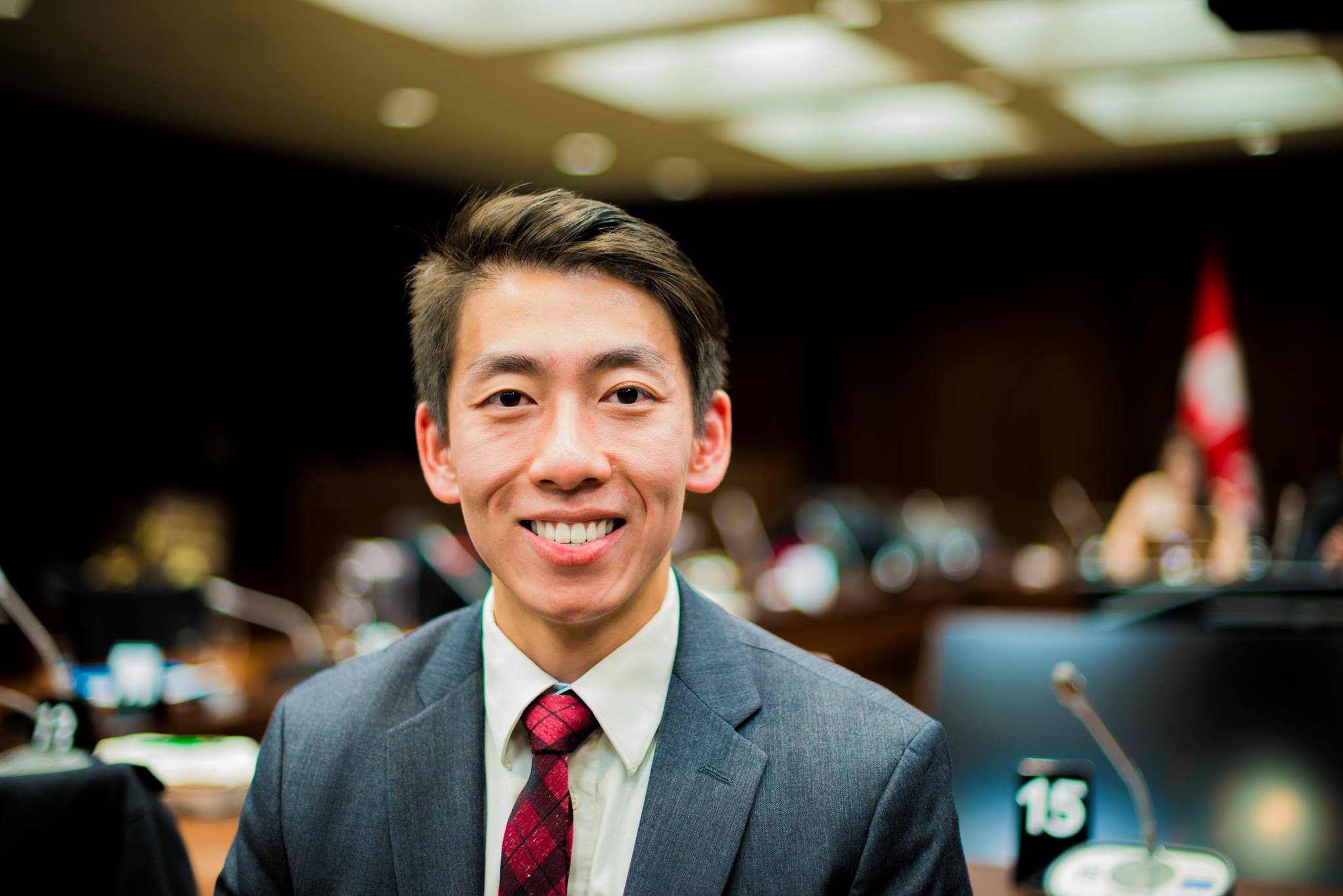
Photo by Usman Khan, courtesy of Golden Gao
Golden Gao
Fourth year medicine at the University of British Columbia
VICE: What's your impression of the opioid crisis?
Vancouver, and specifically the Downtown Eastside, has been one of the hardest hit communities within all of Canada in terms of number of overdose deaths and individuals who are affected by the incoming fentanyl.
It's just been a longstanding epidemic. Right now, we're seeing the peak.
During the four years you've been doing your MD in Vancouver, how have you come in contact with the opioid crisis?
We've had public health physicians and guest lecturers who are opioid users themselves come in.
Within a hospital setting, I've personally worked with two patients who came in with a possible overdose.
I've also been active with the medical students at UBC who are advocating for more upstream preventative strategies for tackling the opioid epidemic.
What does it feel like to be starting your career at a time like this?
There's always that apprehension of dealing with patients who are overdosing because they are presenting so acutely with a potentially life-threatening issue. But because of the opioid crisis there's been more and more training to recognize overdose and how to quickly respond.
As someone who's entering residency, I think there's a lot of hope. I see a lot of momentum behind the discussion surrounding prevention and harm reduction.
You're going to be inheriting the healthcare system in a few years. Any systemic changes you think could help fight the opioid crisis?
I think the biggest systemic change would be focusing on primary care.
When I was working in my fourth year of medical school, we were investigating where overdose patients had their last contact with the healthcare system and seeing what could have been done better at that point to possibly prevent their overdose.
That's interesting.
A whole team of health workers can help them before they get to the stage where they need to have Naloxone injected into them on the street.
We learn in medical school there are many different ways to treat pain. And prescribing opioids for anything but cancer pain is not the best thing.
You often see people with non-cancer pain treated almost exclusively with opioids. It's the most efficient thing for a physician because they are so overworked.
I'd just like to see more resources put into all these other forms of pain treatment that we learn about. Like physiotherapy, occupational therapy, even cognitive behavioural therapy.

Photo by Isobel Gungor, courtesy of Anne McDonald
Anne McDonald
Third year medicine at the University of Western Ontario
VICE: What's your impression of the opioid crisis?
The interesting thing about the opioid crisis is that it's entirely physician-driven. Because you can't make it. It's not like marijuana where you can grow it. You have to get it through a prescription.
Every single pill on the market is tied back to some physician.
(Editor's note: Counterfeit fentanyl pills, often ordered from China, are also a serious problem in Canada.)
As a physician in training, what implications does that have?
There are some physicians who have a policy of never ever prescribing opioids for anything at all. And that's really quite unfair.
For one thing, every single lecture that we have gotten on pain is divided into two categories: pain and cancer pain.
And really, to deny cancer patients their needed pain medication is pretty horrible. I'd almost rather have the risk of diversion there.
Especially from my perspective where my dad just died of cancer. He was taking percocets and things like that all the time. And why not? I mean, you're dying. You should be entitled to that, I think.
How have you come into contact with the opioid crisis?
I think it comes into everything. There's pain in most of medicine.
I like learning about it because there's a huge patient population within [obstetrics] that has opiate addiction and that's a big problem because it's actually dangerous to withdraw in pregnancy. But it's also dangerous to continue in pregnancy because then your baby will withdraw when they're born
Any systemic changes you want to see?
I don't know… More often than not, it's a source of incredible hassle.
It sucks that this happened. Because now, for example, you can't have a crash terminal inside a hospital lying around that has fentanyl or morphine on it.
If somebody is suffering so much they're crashing—a code blue kind of thing—they need to be intubated. There's a sequence of drugs you're supposed to use to intubate someone and one of them is fentanyl.
And so, essentially, you're going to intubate them without that. And that's pretty cruel, I think.
Anything else on your experience with the opioid crisis?
I feel like we can really easily get on the high horse of talking about addicts like they're a different species. But really, you would have the exact same physiological response within three weeks if someone just gave you that prescription.

Photo courtesy of Yuchen Li
Yuchen Li
Third year medicine at the University of Toronto
Where have you come into contact with the opioid crisis?
Just last week I admitted someone who overdosed on 100 tablets of Percocet per day for the past three days.
Her family physician didn't want to give her any more. She ended up going to a methadone clinic to try to wean off.
She met some connections there that supplied her with illegal opioids. We don't know what's in those. It could be tainted. Fentanyl is often a substitute because it's cheaper.
How does it feel to start your career in the midst of this ongoing crisis?
It's definitely tough. The first two years we're in a classroom setting. We tend to think, like, oh the world is perfect. We have all this medication and things are simple.
But during clerkship we become exposed to the reality where the medication that was originally intended to do good actually does harm.
What have you learned about when to prescribe opioids?
You have to look at other issues that the patient has. If you have a patient who has a longstanding history of addiction or psychiatric issues like depression, try not to prescribe opioids.
For people who are on other medications, especially benzodiazepine, try to avoid opioids. Because benzodiazepine depresses your respiratory drive.
A substitute [for opioids] could be ketamine. They use that for anesthesia. It's also been proven to be very useful for pain. It's off label, for sure. But we used it on one of our patients and it did wonders.
Megan Devlin is a journalist based in Vancouver. Follow her on Twitter
Lessons Learned from Investigating Your Mother's Brutal Murder
In October 1984, Leah Carroll's mother Joan was strangled during a cocaine deal gone awry at the Sunset View Motel in Attleboro, Massachusetts. As the murderer pulled a towel tighter around her 30-year-old mother's throat, he's believed to have said, "Come on you rat… give me the death rattle."
Fourteen years later, Carroll's father, Kevin, died in a seedy hotel in downtown Providence, Rhode Island called the Sportsman's Inn. "Rooms rented for forty dollars a week," Carroll writes of the incident. "The ground floor was a strip club with a 24-hour Italian buffet." He was 48 years old; Carroll was 18.
Carroll describes these two incidents in the first two pages of her new memoir, and ends the prologue with a question: "Who were these people, my parents, and how did they come to this place?" Over the next 220 pages of Down City: A Daughter's Story of Love, Memory, and Murder, out this month, she goes searching for answers. She speaks to journalists, friends of her parents, and even the son of the man who killed her mother. She dives into the strange and sordid history of Rhode Island, taking particular interest in two institutions: organized crime, and the daily newspaper, the Providence Journal, where her father worked as a delivery driver. She tracks down documents, including newspaper clippings and police reports about her mother, and her father's autopsy report, which describes "Steatosis of the Liver Associated with Clinical History of Chronic Ethanol Use." Along the way, she interweaves memories of her own tumultuous upbringing in the troubled but lovable seaside state.
The result is an unusual, mesmerizing hybrid: part true crime story, part coming-of-age memoir, part portrait of a parent's alcoholism, part love letter to Rhode Island. I recently spoke with Carroll, who has written for an array of publications—including Broadly—and lives in Brooklyn, for some perspective on the project. Here's what she had to say.
VICE: In the 2010 "Modern Love" piece you wrote, of your mother's death, "...for me, discovering the truth had somehow let me out." And in the book you describe how one of the men who was there the night your mother was murdered was working on a memoir when he was in protective police custody. You write, "But Peter Gilbert doesn't get to tell this story. I do." What does it mean for you to be able to tell this story—for you to be the one controlling the narrative?
Leah Carroll: One of the things that changed for me when I got older, when I became the age that my mom was when she died and then older, [was] realizing she did not have a life. Her life was taken from her. Thirty years is not a life. And I think we tend not to think of our parents that way, as people outside of us. And so it was a really powerful realization for me that I wanted to tell her story.
And, unfortunately, when somebody becomes a victim of a violent crime, their story becomes wrapped up in the story of the person who killed them. That's just inevitable. And because of the way that this went down, that story had to be told. And I think in many ways, I decided I didn't want to disown that part of her. I wasn't going to be ashamed that she was a drug addict, and [the fact that] that put her in a position where many, many people were in power over her and they didn't care about her. And I thought that it was important to point that out because she had the opportunity to be a really incredible person, and that opportunity was taken away from her, first by people who murdered her, and then by the people who sort of took her death and tried to make their careers on it, basically...in law enforcement and in Rhode Island state government.
There are some incredibly raw and personal and powerful documents in the book, including what is essentially your father's farewell note to you, and the notes from his autopsy. Did you ever hesitate and say to yourself, "This is too personal." Or did you feel, This all needs to go in?
I think that my dad's note to me is so extraordinary and, in some ways, encapsulates who he was a human being in so many ways that I never thought of telling the story without including that note. Even though it was very private and it was addressed to me, it really was him, and it was his voice, and it was important for me to have his actual voice and his actual words.
I've amassed so many of these documents and the language in them and the ways they were written—they were so interesting to me. I always wanted to include them because of the idea that that we leave behind this trail of documents. And they are not necessarily for public consumption, but they are public documents. The autopsy reports, the police reports—these things, they are sort of like the non-artful record of our lives.
They were [also] always a touchstone for me to go back [to]. If I didn't know how to feel about something, I knew that I had a document, and I knew that I could present that, and sort of let that be an objective truth.
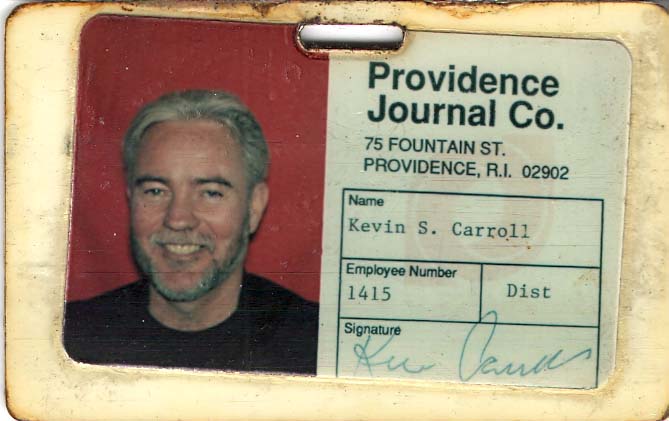
I don't want to to oversimplify this, but do you think your father's fate—I wondered as I read—was he kind of a belated casualty of the Vietnam War? Or maybe was he, in a way, a collateral casualty of what happened to your mom? Or maybe he was fated to have the problems he had, regardless?
I mean, all three. When [my dad] went to Vietnam, he was five foot nine and 160 pounds. He was literally a child. He was 17, he had just finished tenth grade, and he was living with his dad and his step-mom, whom he didn't like, and was like "I'm just going to go to Vietnam." And it destroyed him in many ways. Of course, his mother died of cirrhosis of the liver. And then I think my mom's death was incredibly hard for him, especially because in the beginning he was a suspect, as all husbands are. I [also] cannot overstate the importance of the Providence Journal in my father's life and I think a lot of people like him. Because it was a rally extraordinary place, and it had value and it gave value to the people who worked there. And it produced such great content. And then when that was taken away from him [when he was laid off during a corporate restructuring], that really just cut his lifeline.
How did you decide to take on this project—were there particular true crime books that inspired you to write your own?
So, James Ellroy's My Dark Places changed my life. I think I can divide my life between before that book and after I read that book. I read that book in college and it just blew my mind. And actually James Ellroy had been one of my dad's favorite writers. Black Dahlia was one of his favorite books, and L.A. Confidential. And then there's also this great book by Mikal Gilmore... Shot In the Heart. So that was another one.
I read those two... and was like, "I'll never be the same. These books are life-changing." And that one was interesting because The Executioner's Song, the Norman Mailer book about Gary Gilmore [Mikal Gilmore's brother] had been one of my mom's favorite books. So there were these kind of weird connections.
What do you want people to take away from this story?
I think that my parents were ordinary, but they were also special, and their lives were really special. And they were these two people who existed in this particular time, and they wanted more than circumstances might have allowed for them. And even though both of their lives ended too soon, through kind of the sheer force of just their will and their personality and their talent and everything about them, they made me. And I'm telling this story.
Their lives mattered. And I think that their story matters and the story of Rhode Island matters. And I think you can kind of hang on to things and be angry, but in the end, especially for mom who I hadn't known...I just found so much love for my mom as a human a being, in writing about her. And I just hope it honors their spirit or who they were. Because they were great.
Learn more about Down City, which drops Tuesday, March 7, here
Follow Philip Eil on Twitter.
The Abortion Pill Was Supposed to Revolutionize Abortion Access—What Happened?
Over 16 years ago, the United States stood on the brink of a reproductive rights revolution. The FDA was in the final stretch of approving mifepristone, a drug already available in Europe in China, which was said to make ending a pregnancy within the first 10 weeks as easy as taking a pill. Reproductive health advocates stateside anticipated that this move would radically change the landscape of abortion access.
Even after the victory of Roe v. Wade, hospitals shied away from providing abortion services due to intense stigma and political maneuvering by anti-abortion activists. As a result, surgical abortion had been confined to some of the only spaces willing to help women: stand-alone reproductive health clinics, which were scarce, not to mention vulnerable targets for protesters. In the late 90s, the abortion pill was set to change that.
Read more on Broadly
The Chaos and Beauty of Carnival in New Orleans
Carnival in New Orleans means there are 12 days of musical parading and costumed revelry through the city's crumbling streets. Although 2017 wasn't my first Mardi Gras, I won't presume to try to define it. Each year a delicate ecosystem unfolds, full of contradictions. It is freeing and joyful, but exhausting and vulnerable. Racial and class tensions are at times amplified, and at other times reconciled. Locals welcome tourists, but fear and resent the million visitors who disrupt the city.
Mardi Gras makes you manic. Powered by its intoxicating vigor, I wandered the streets for a dozen days, sleeping only three or four hours a night. I crashed exclusive balls, braved Bourbon Street, and walked miles alongside parading marching bands. Here are some moments from my journey.
See more of Avery White's work on her Instagram.
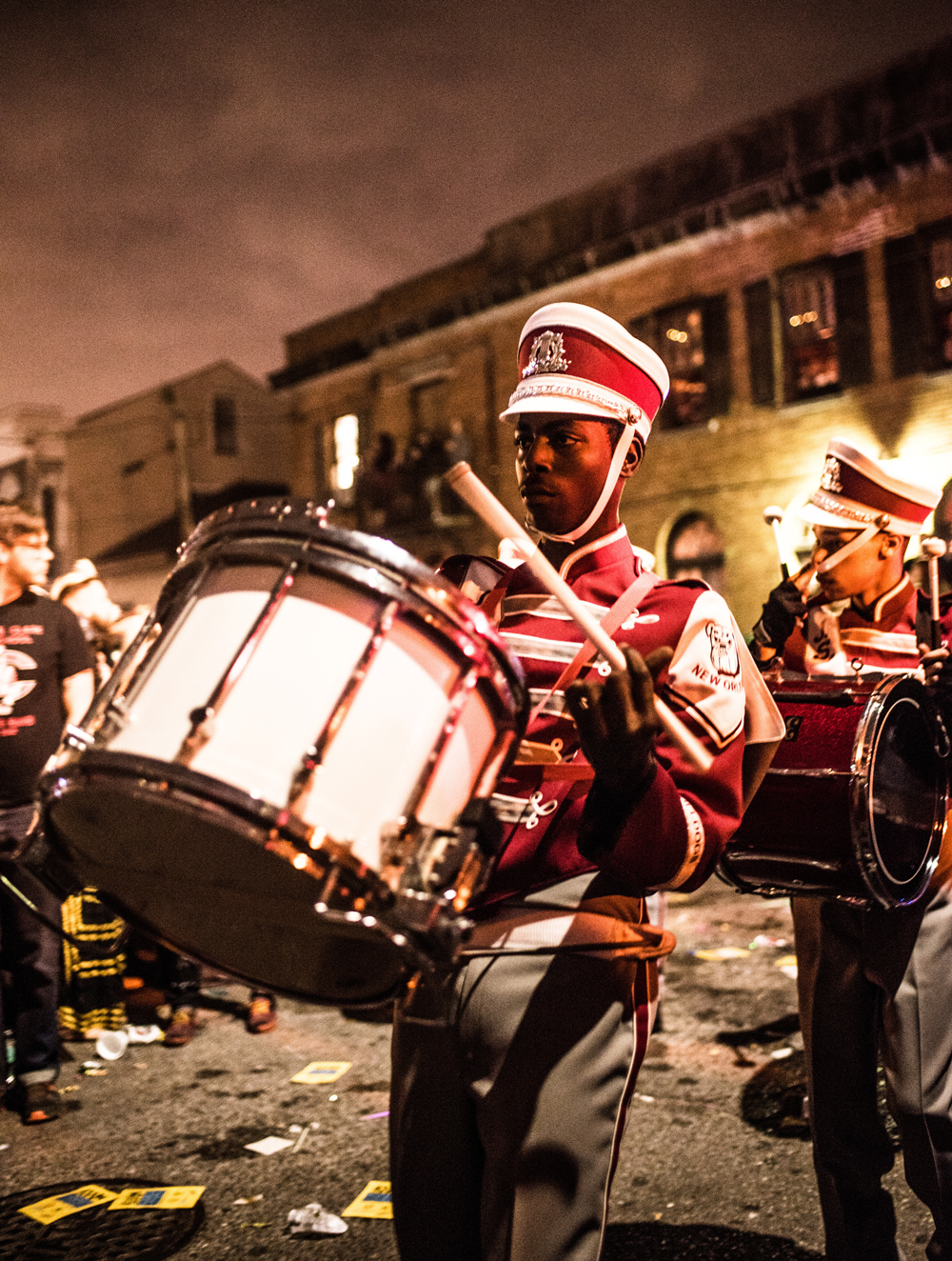
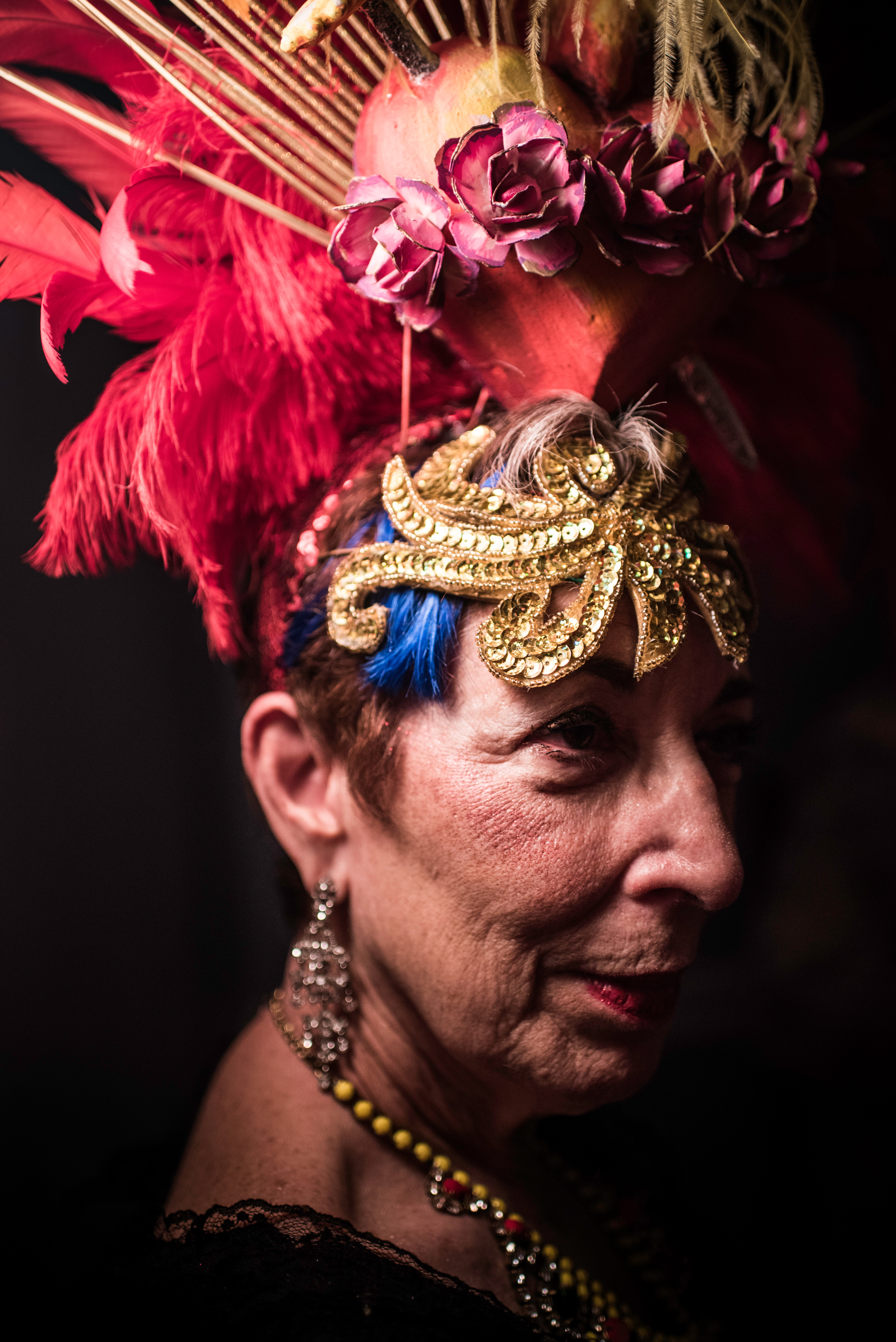
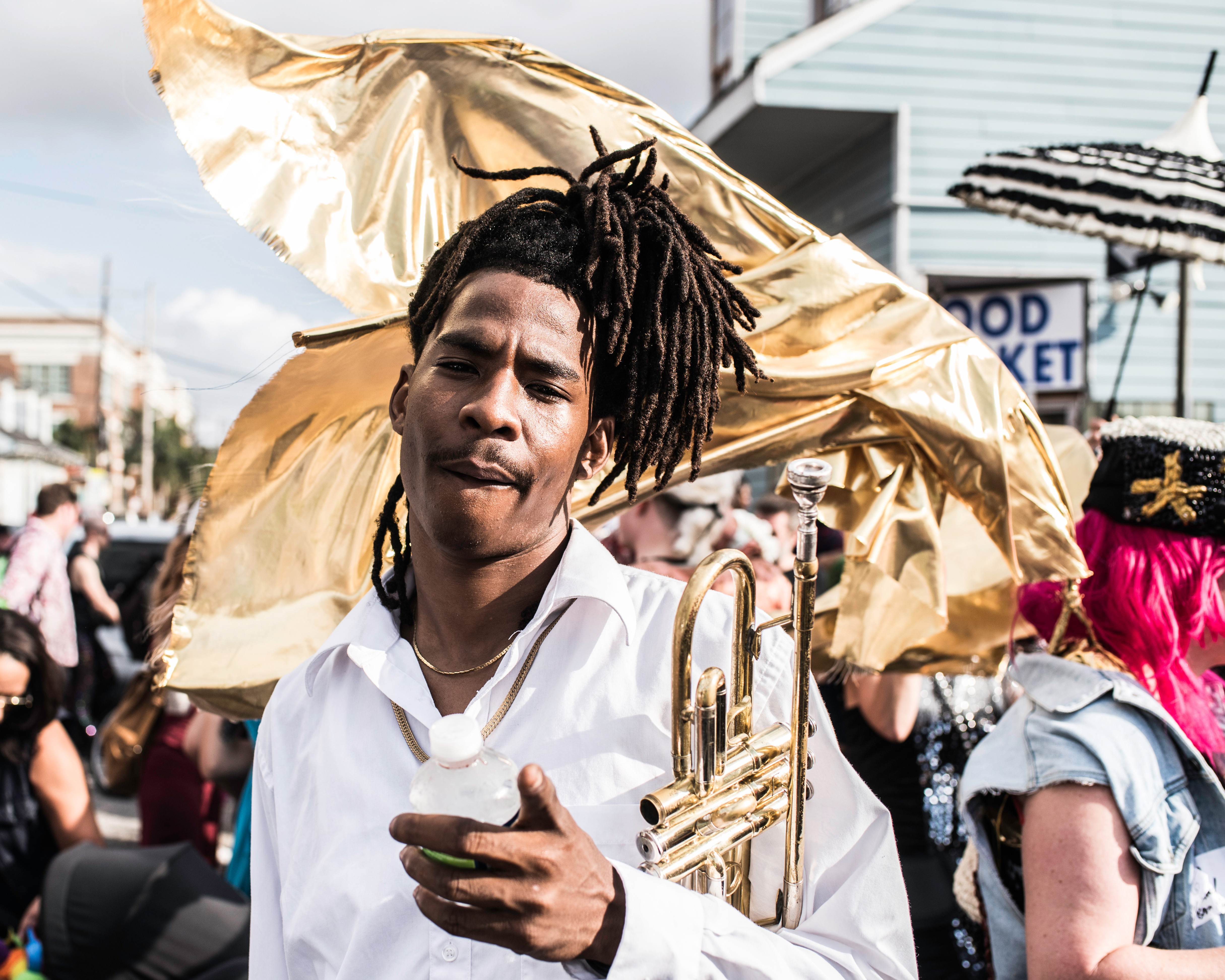
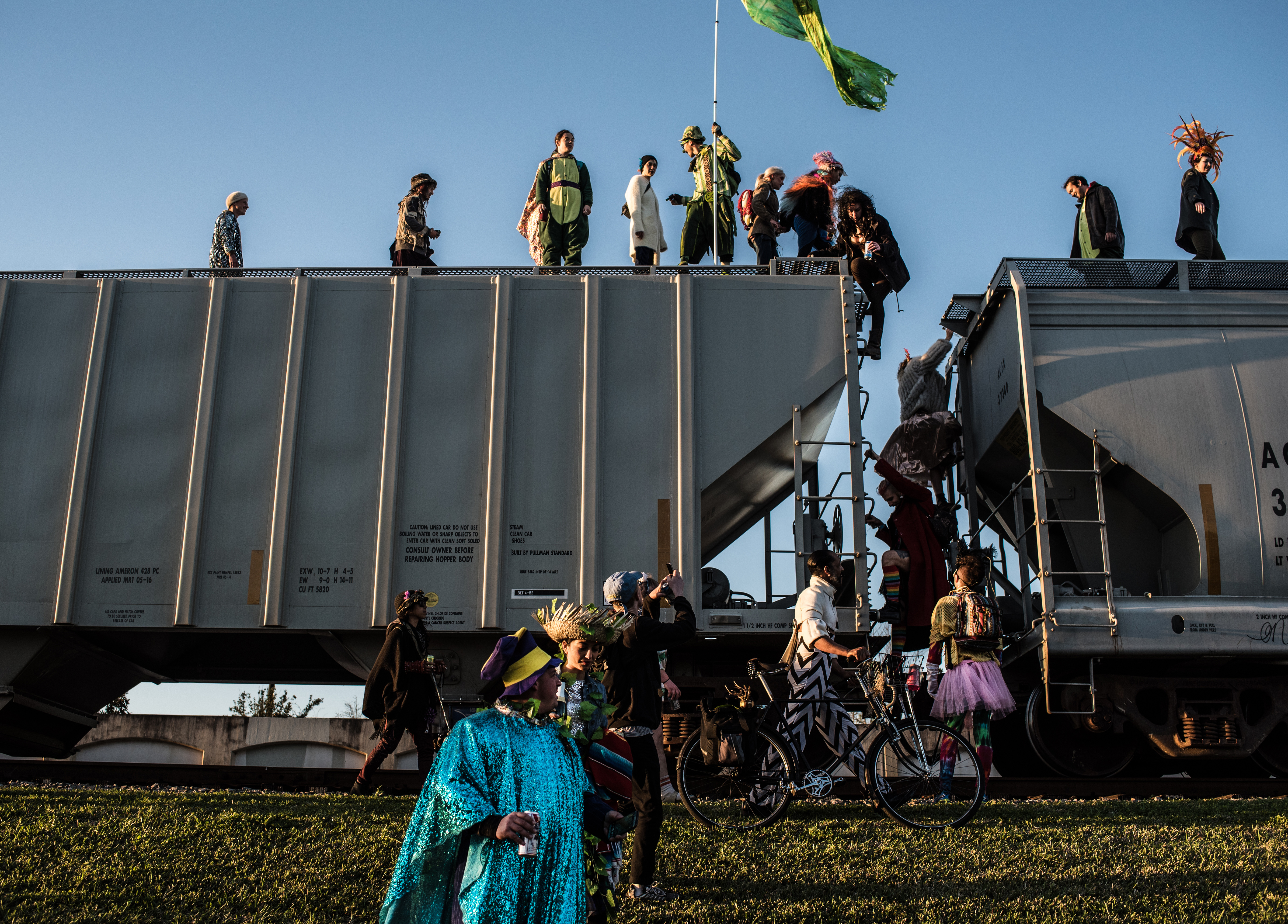
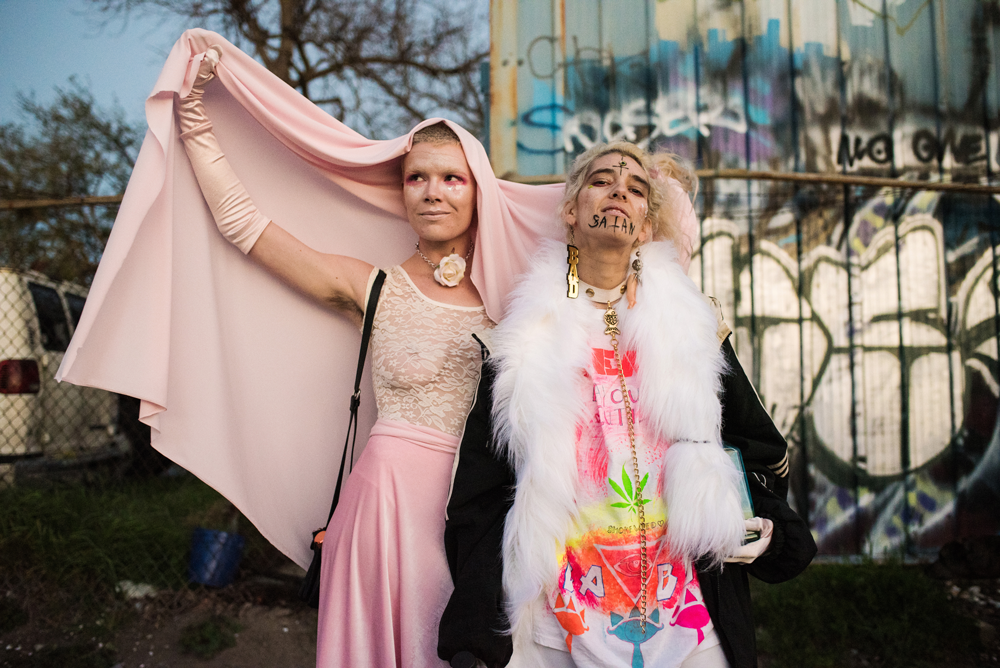
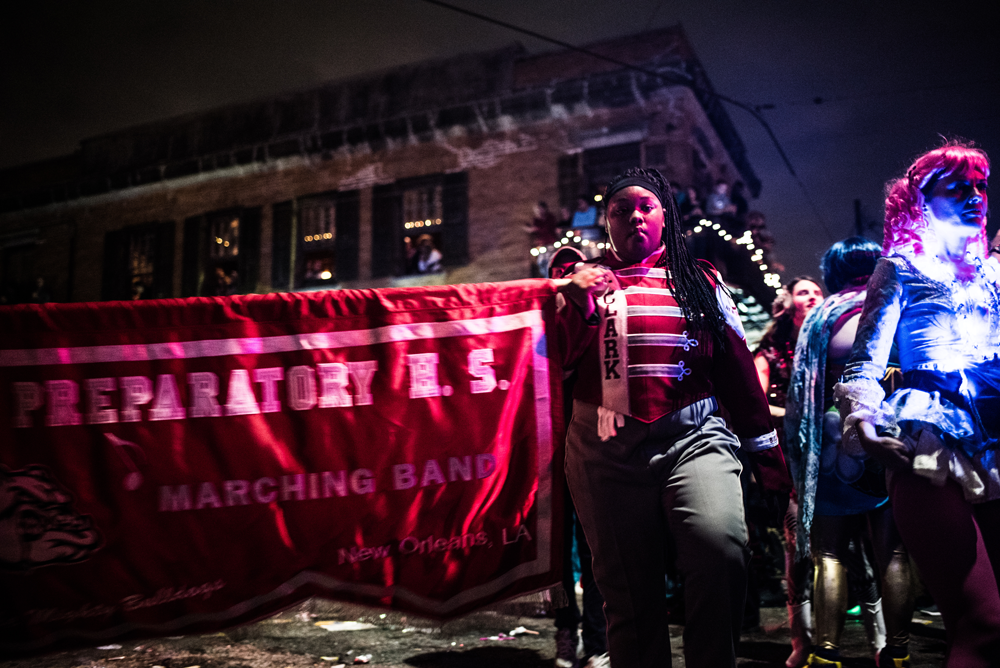
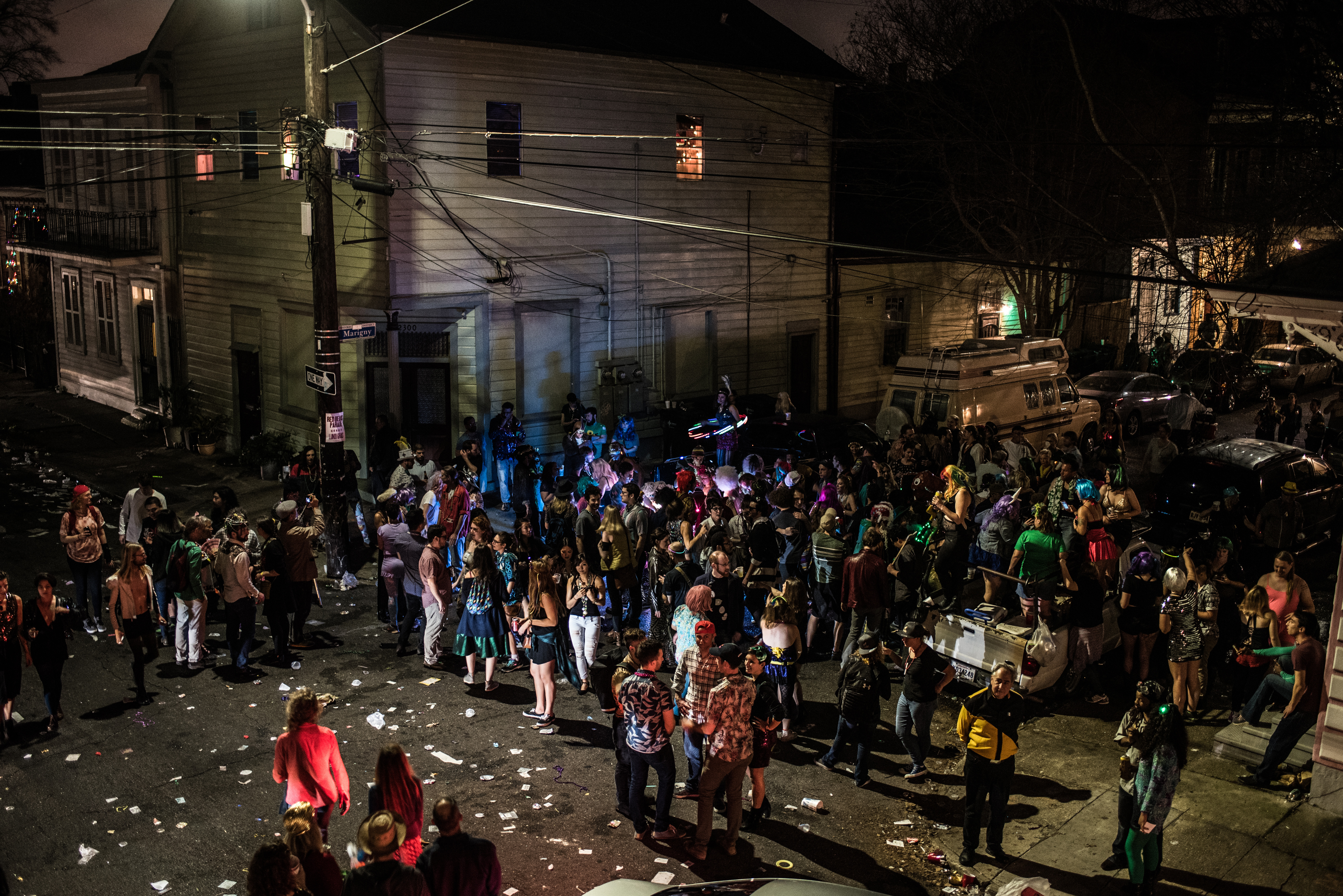
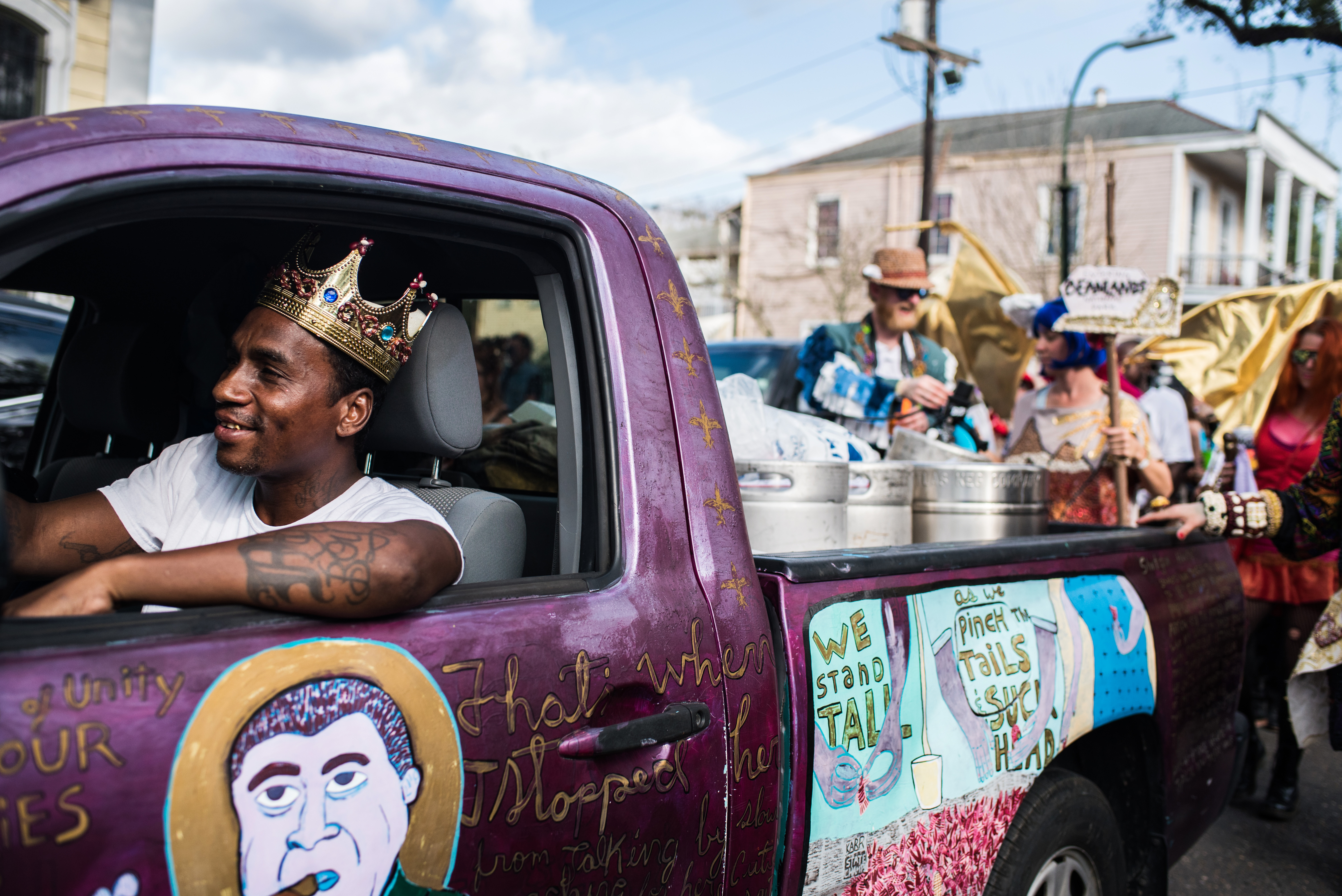
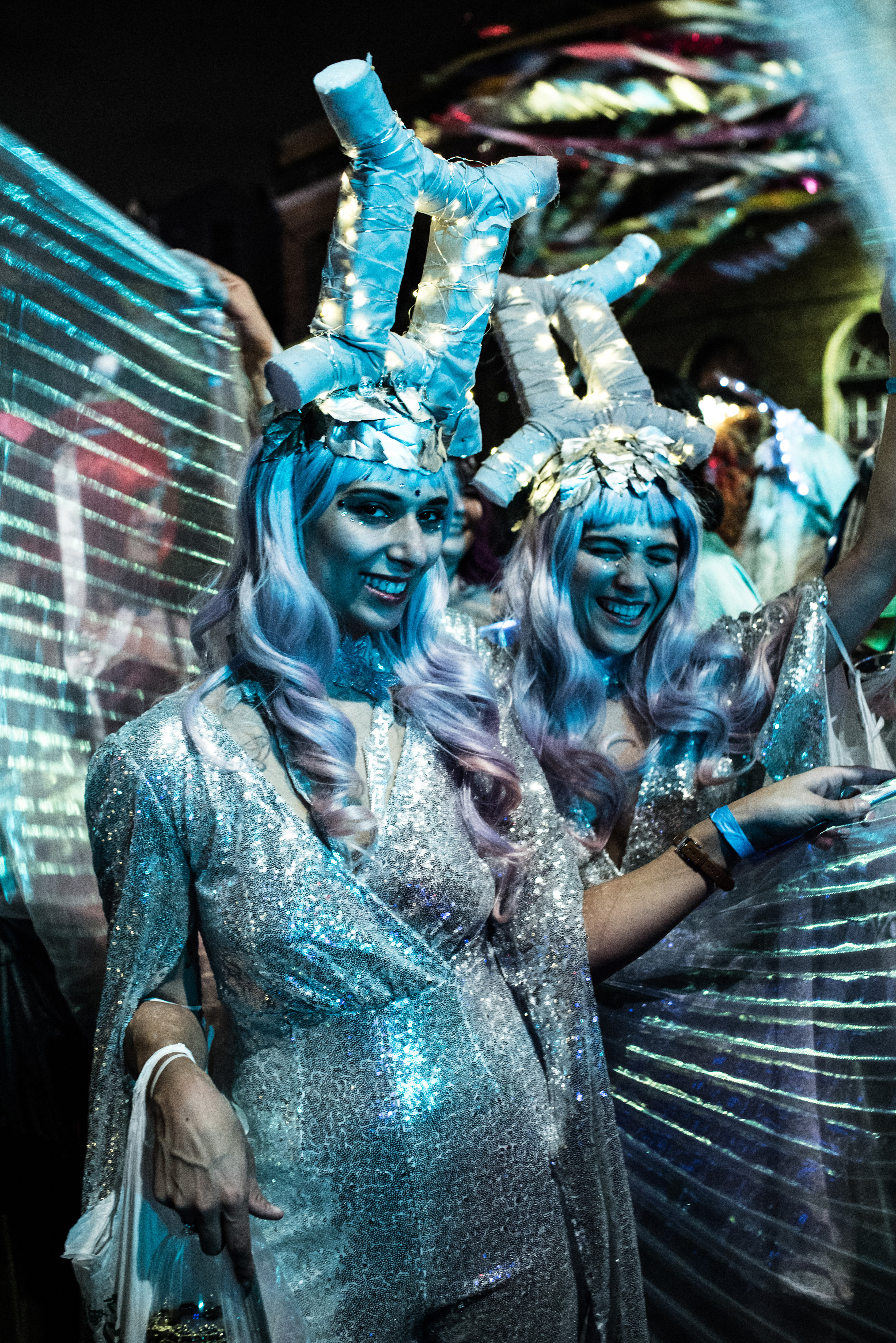
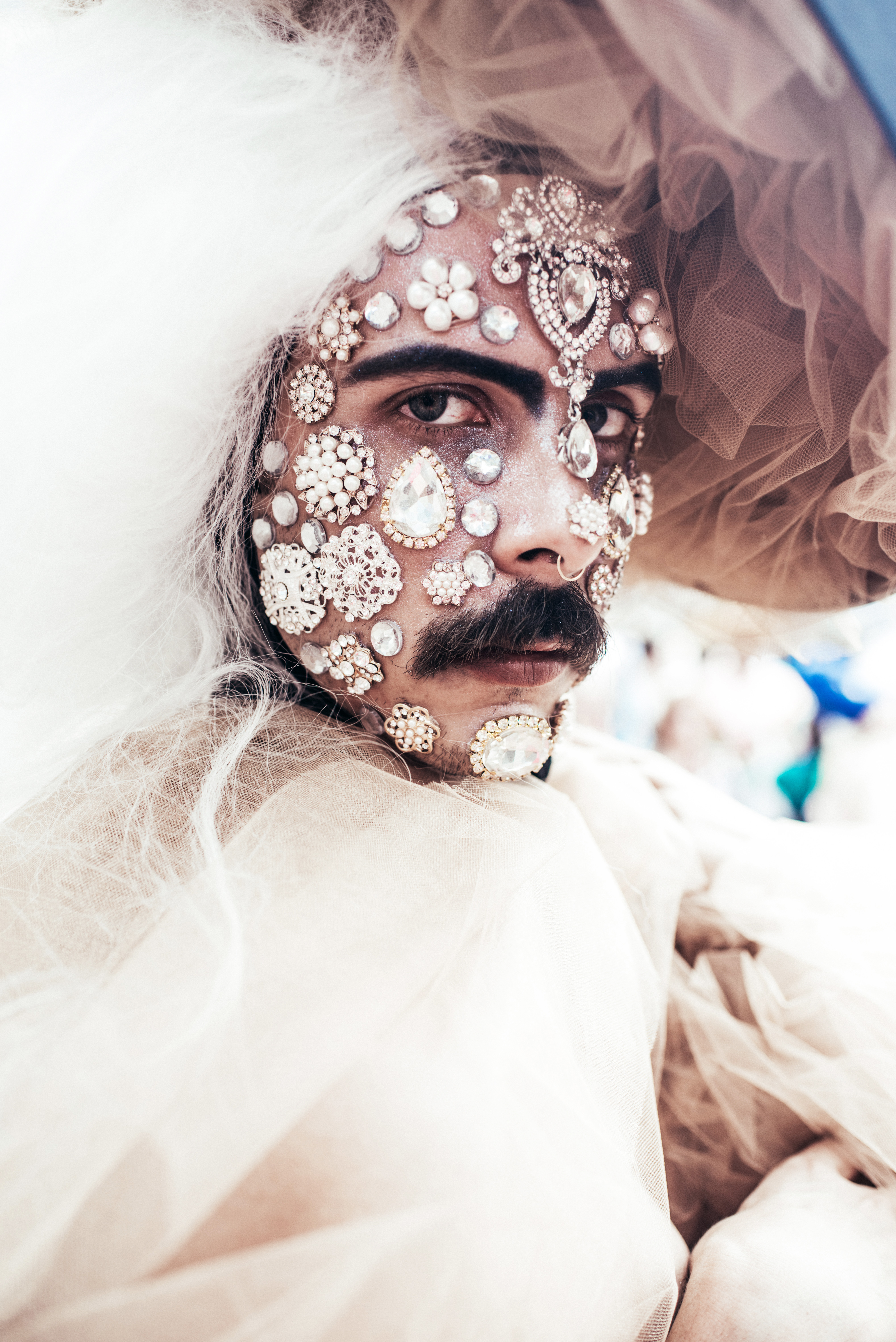
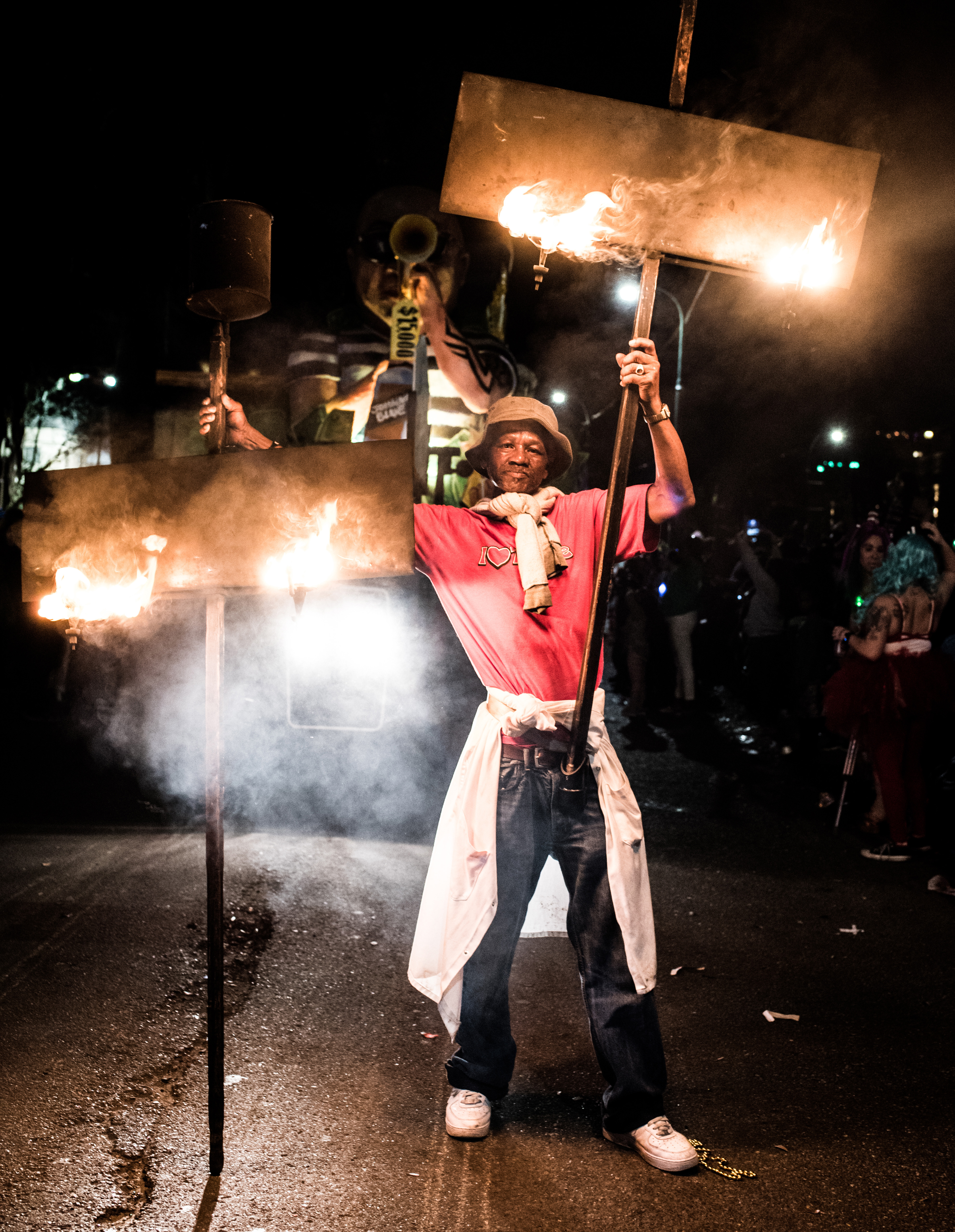


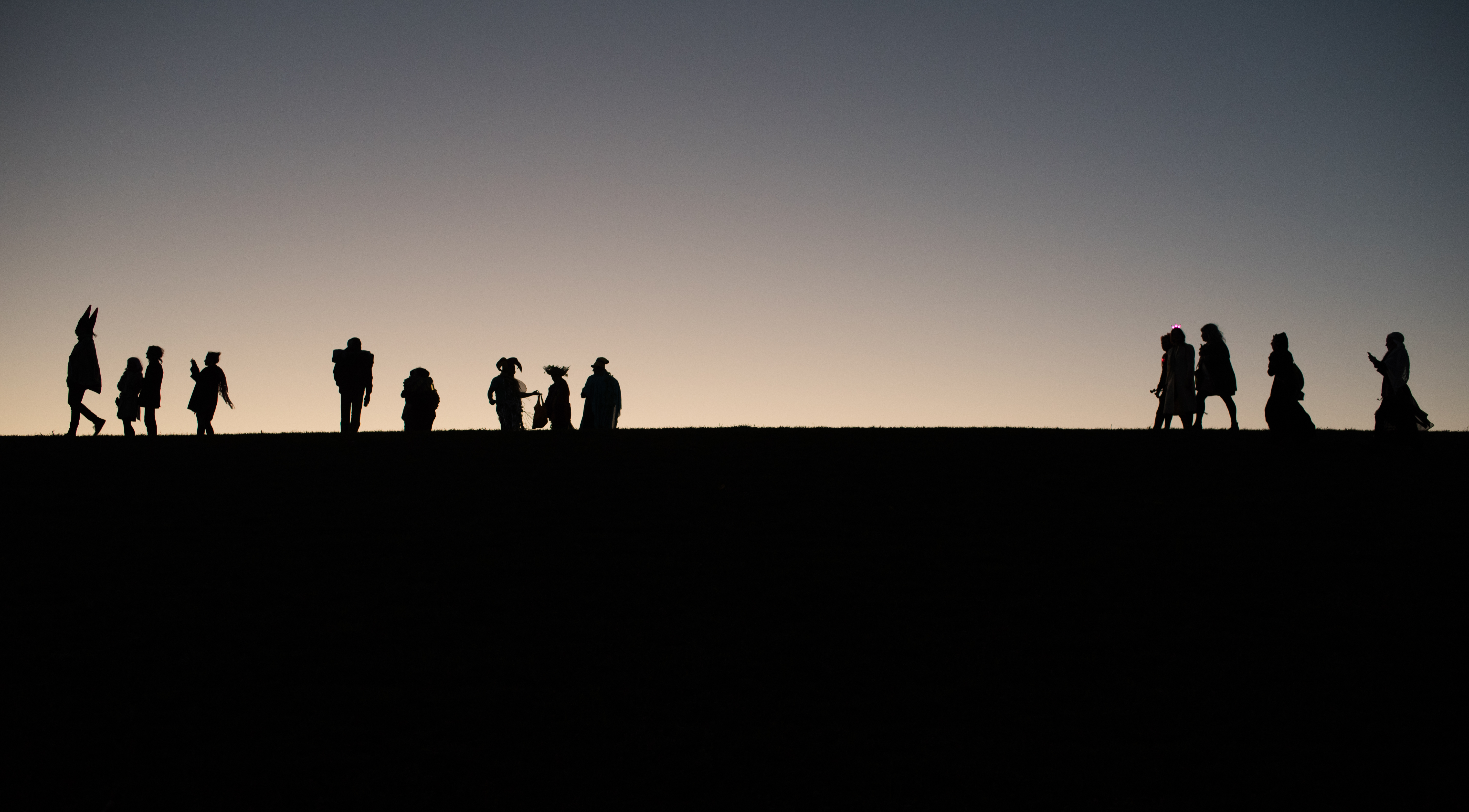
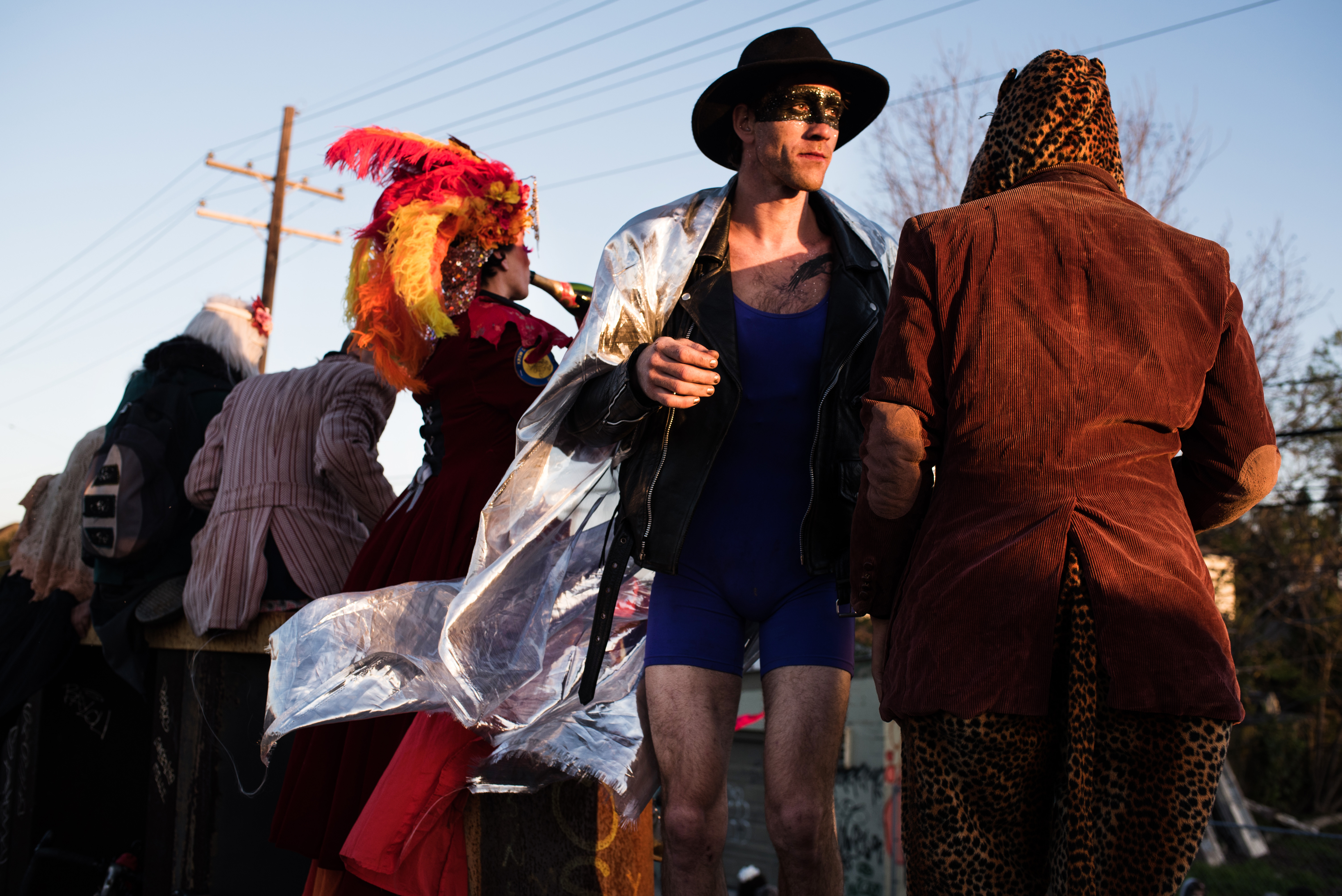
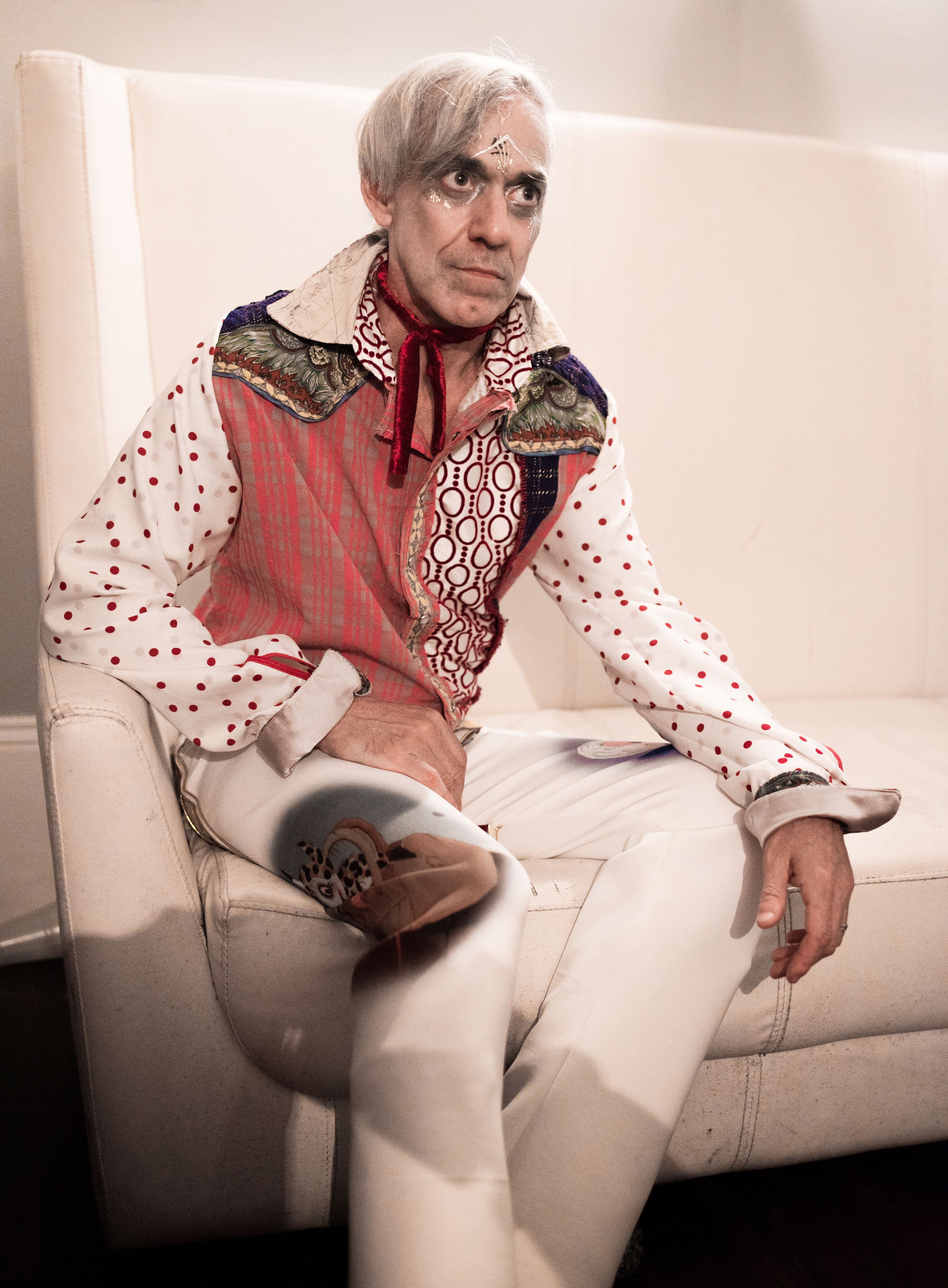
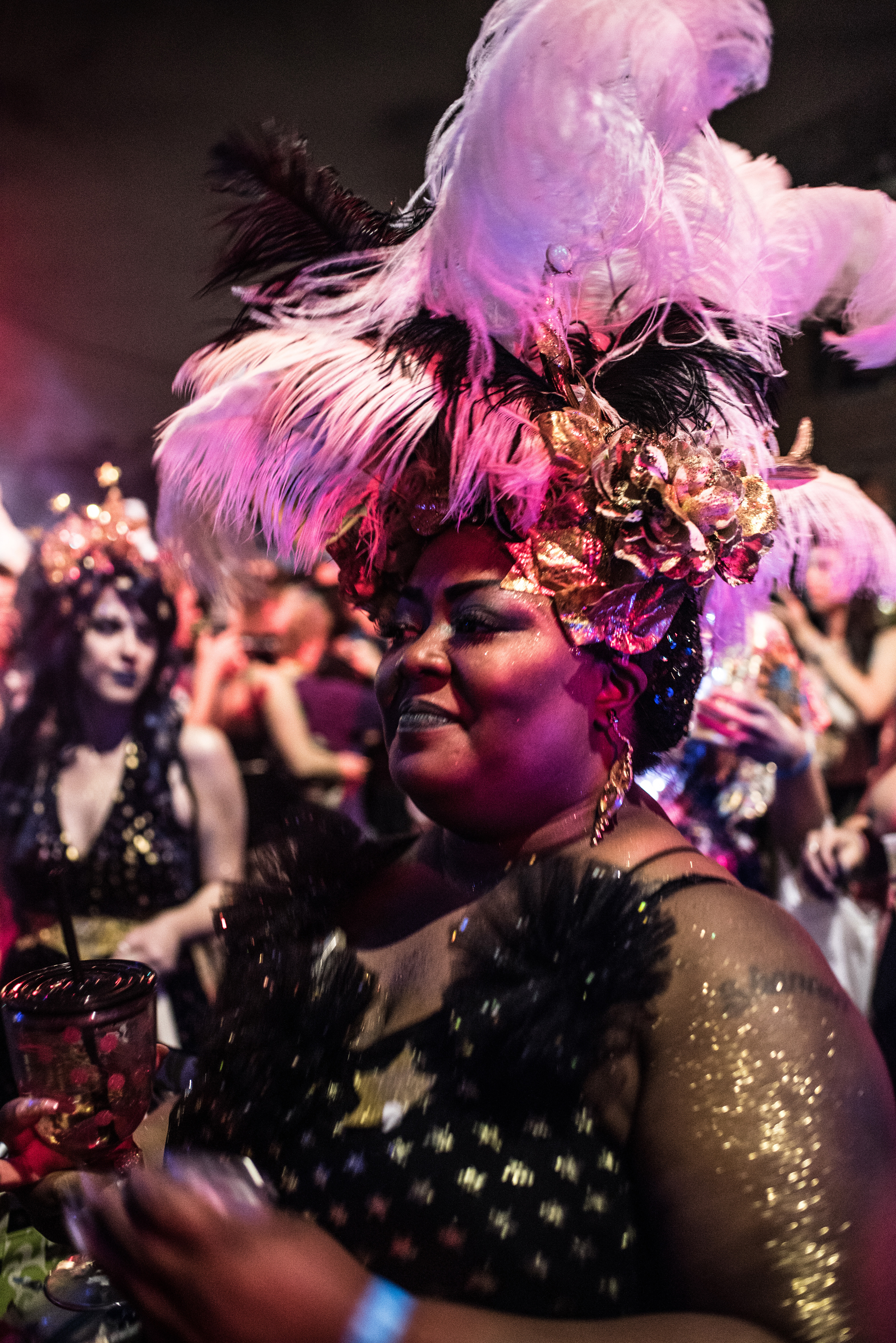
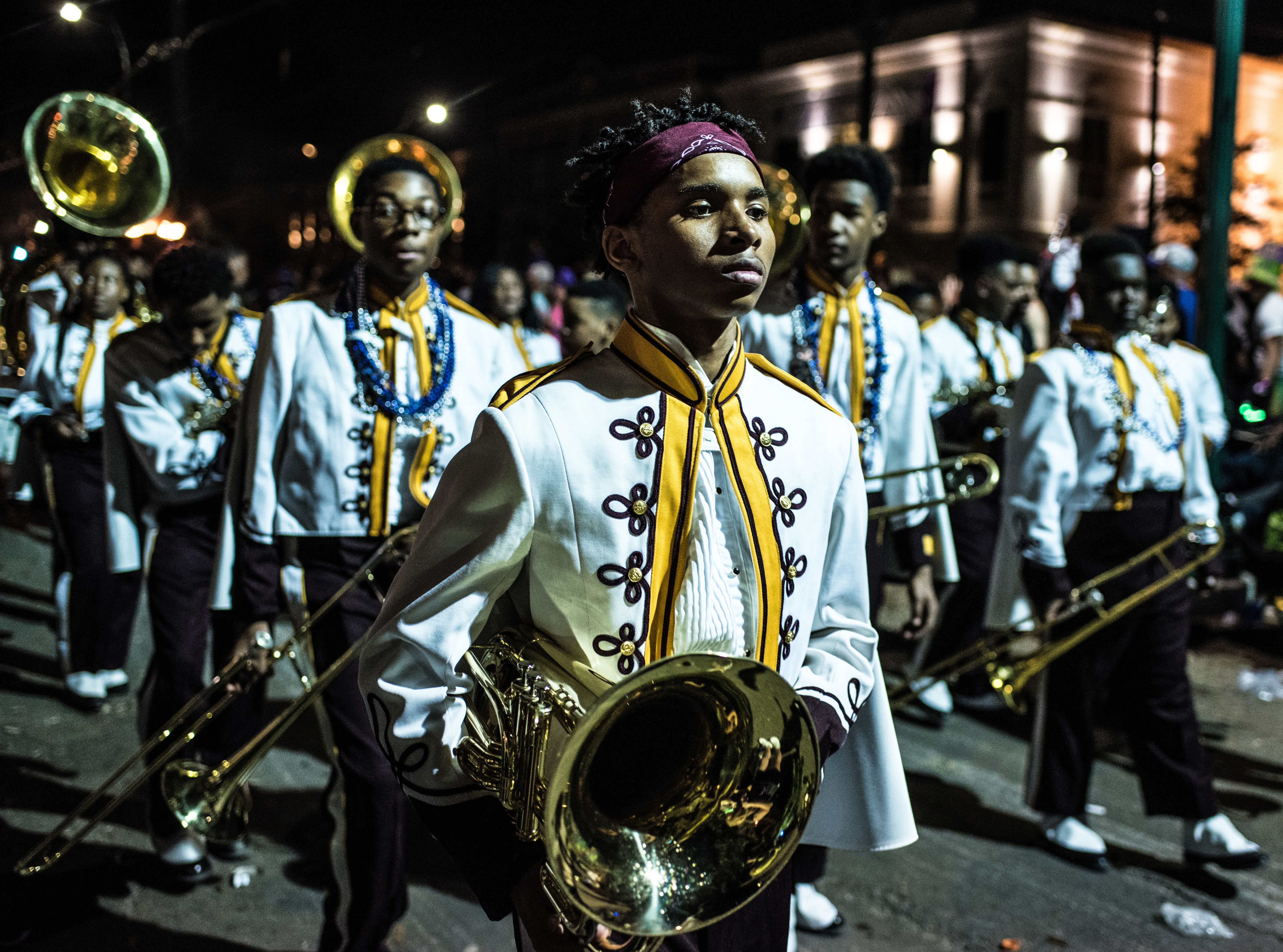
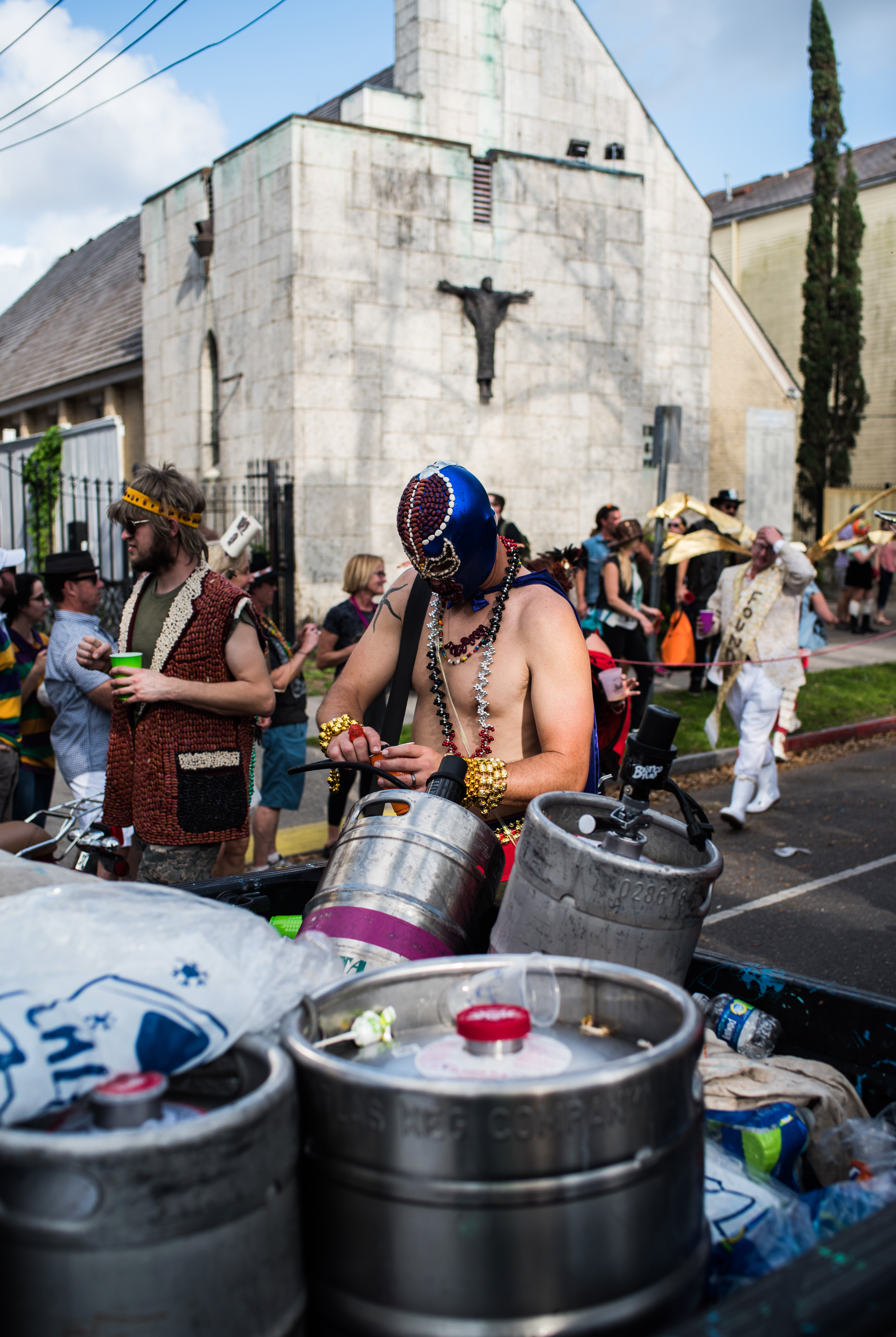
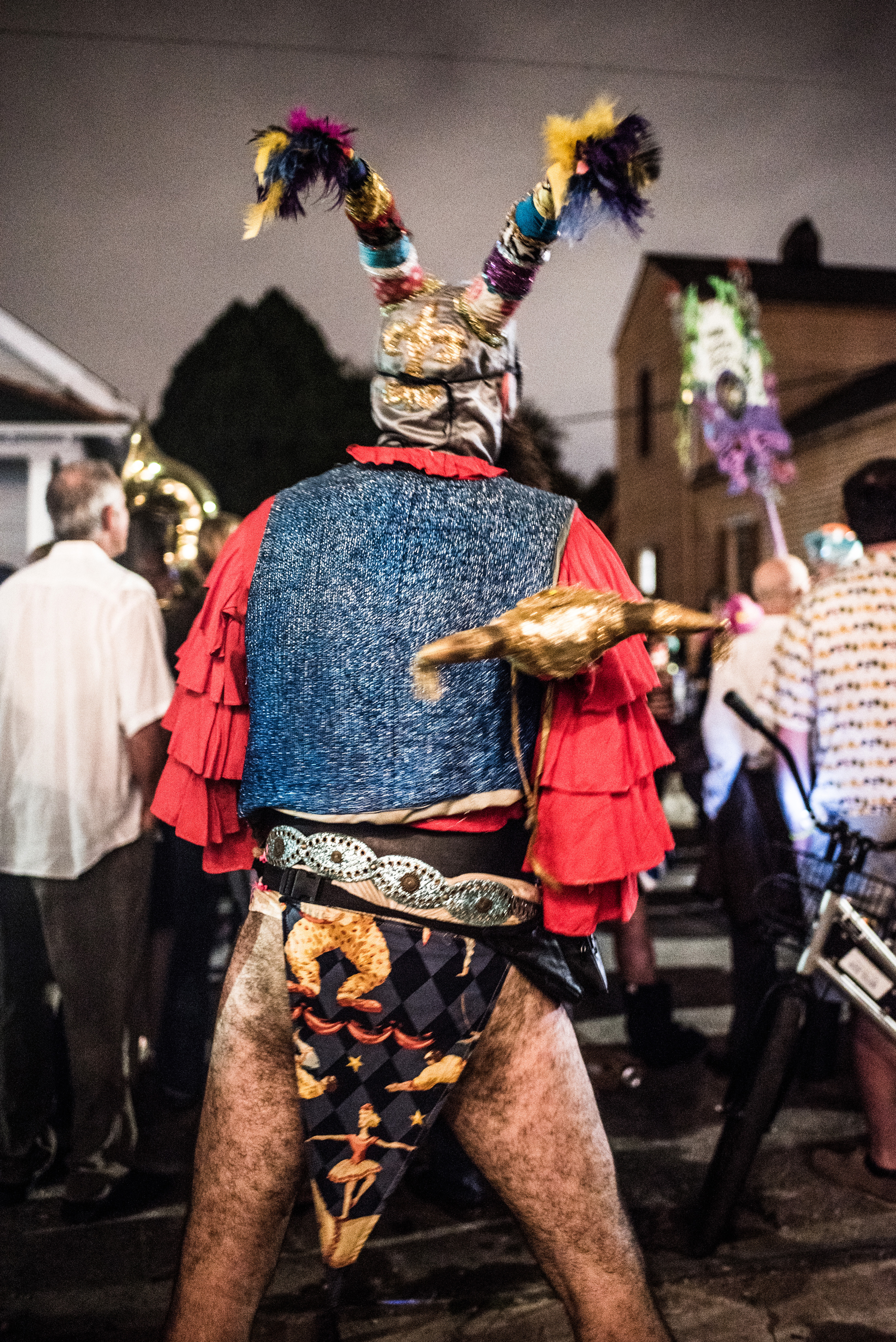

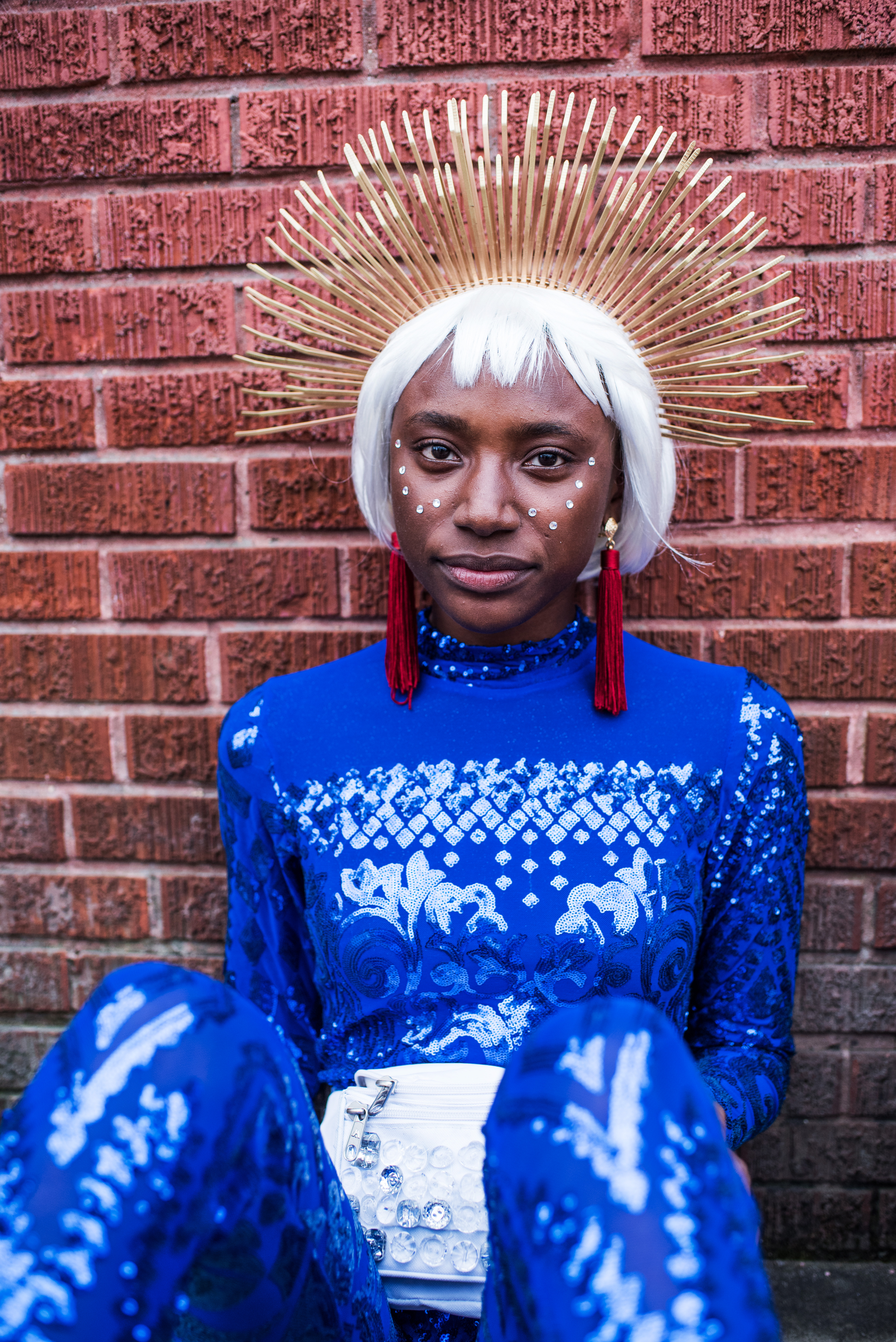

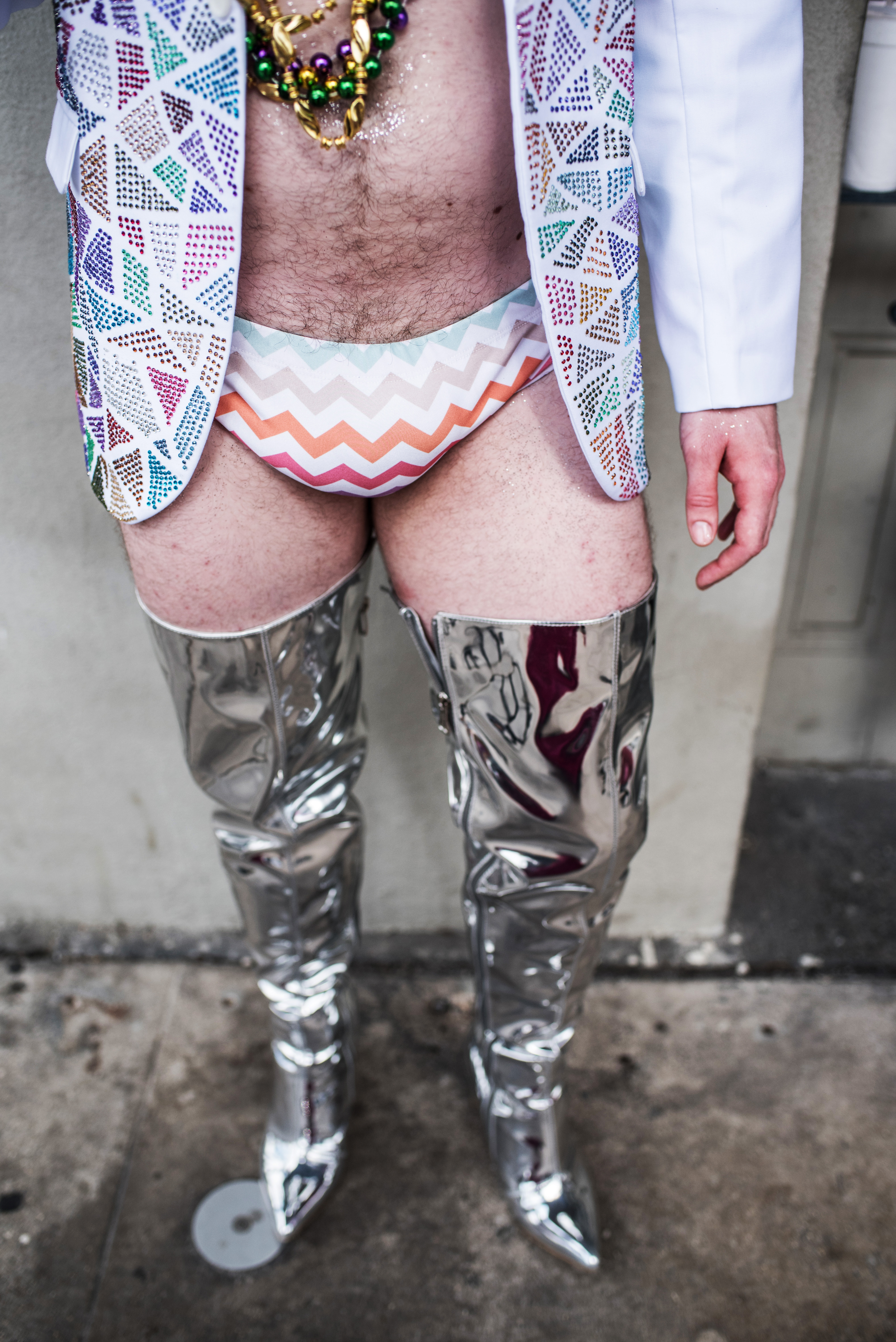
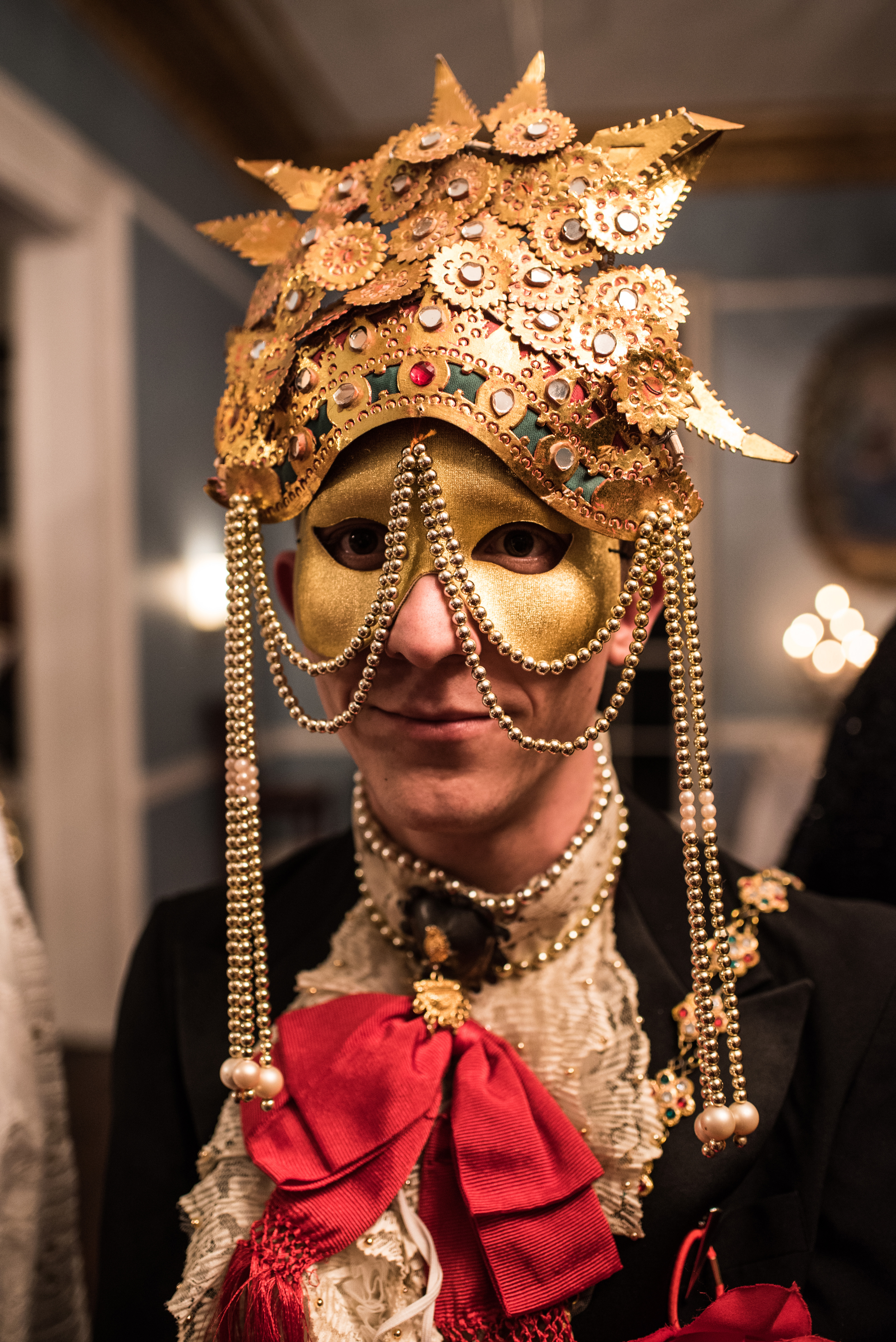
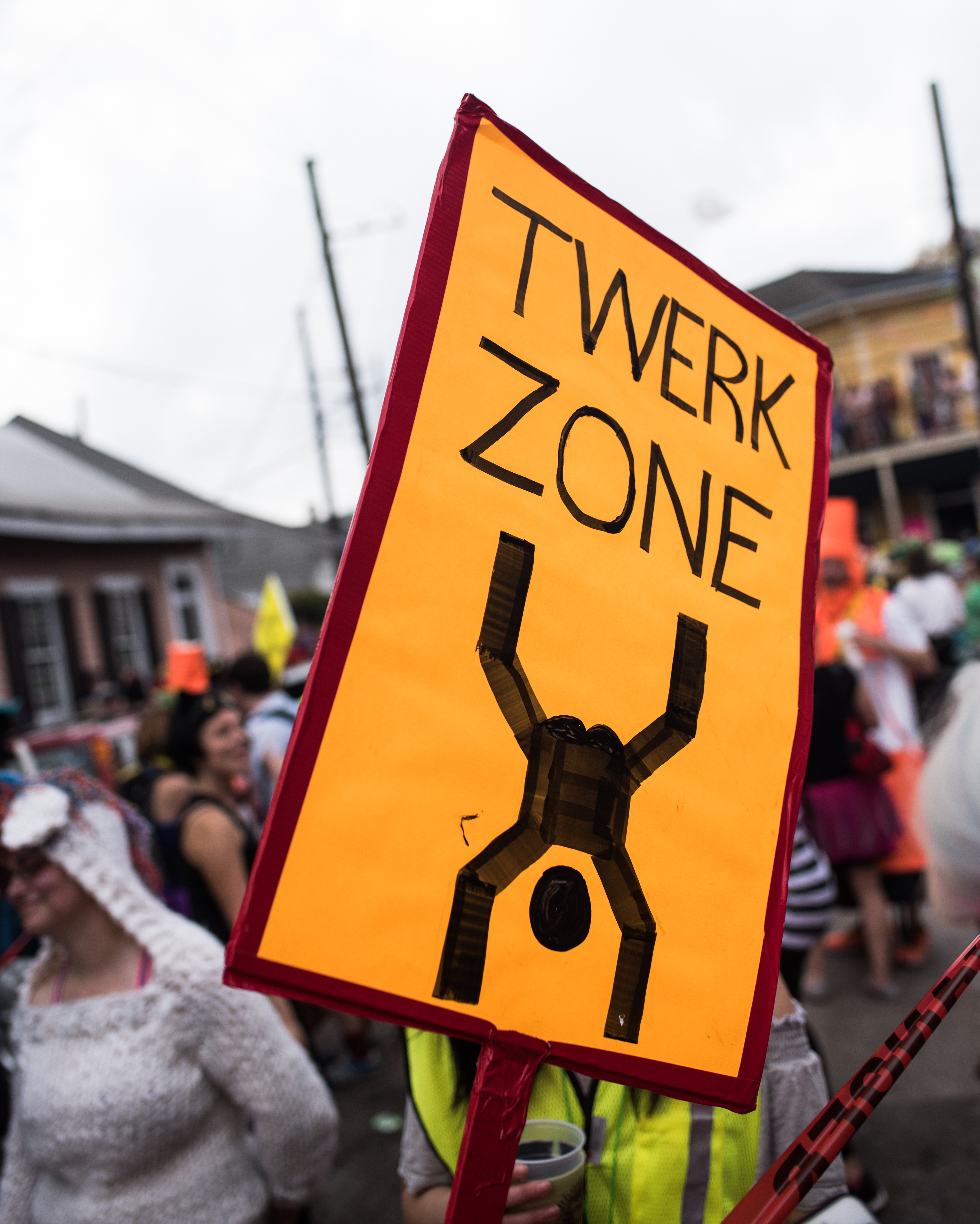
DREAMer Who Got Arrested After Speaking Out to Be Deported Without Hearing
Daniela Vargas—the DACA applicant who was arrested Wednesday after publicly speaking about her family's deportation—is now going to be deported herself without a court hearing, according to her lawyer.
The 22-year-old, who emigrated into the US from Argentina when she was seven, had just recently reapplied for protection under the Deferred Action for Childhood Arrivals (DACA) program, which protects undocumented immigrants who came to the country as children, often referred to as "DREAMers." Her previous status had expired in November, but because she had to save up for the $495 application fee, she didn't get her new application in until February 10.
ICE officials originally said Wednesday that Vargas would go through court proceedings to find out whether or not she could stay in the country. But then on Thursday, Abby Peterson, Vargas's lawyer, said the ICE was instead going to deport her client immediately because she originally entered the country through a visa waiver program that doesn't give its participants the right to a hearing unless they're seeking asylum, according to the Huffington Post.
Peterson argues that Vargas should still get to see her day in court because her parents were the ones who had decided to bring her in under the visa waiver program.
"She was seven years old at the time," Peterson said. "She didn't waive those rights, her parents waived those rights. And now she's an adult trying to assert her own rights."
Vargas was picked up by ICE agents in Mississippi on Wednesday right after she appeared at a press conference and spoke publicly about her father and brother's recent deportation. Her family members were detained on February 15 because they had overstayed their visas, and agents reportedly let Vargas go because she claimed she had DACA status, according to the Huffington Post.
President Trump has seemingly thawed on his views on DACA since taking office, after calling the Obama-era program "unconstitutional executive amnesty" on the campaign trail, the Washington Post reports. When asked about the program in an ABC interview in January, he responded, "They are here illegally. They shouldn't be very worried. I do have a big heart. We're going to take care of everybody. We're going to have a very strong border."
"I strongly feel that I belong here, and I strongly feel that I should be given a chance to be here and do something good and work in this economy," Vargas said through her lawyer from her Louisiana detention facility. "I've even tried to join the military, and I can't do that. But, I mean that's not the point, the whole point is that I would do anything for this country."
Read the Letter Trump's Immigrant Grandpa Wrote Begging Not to Be Deported
In November, a German tabloid unearthed a 1905 letter from Donald Trump's grandfather, Friedrich Trump, in which he begged German authorities not to deport him. The handwritten letter—originally in German—has now been translated and published in the latest issue of Harper's.
The elder Trump first emigrated to the US from the Bavarian town of Kallstadt in the German Empire in 1885 at the age of 16, illegally skipping out on mandatory military service (sounds familiar). That move lost him his citizenship, and he later became a US citizen where he made his fortune running brothels and bars during the Yukon gold rush.
Trump returned to his homeland in the early 1900s, but he was scheduled to be deported because of his draft-dodging history. The newly translated letter is a plea to Prince Luitpold of Bavaria, who ruled over the Kallstadt at the time, not to deport Trump back to the US.
"Why should we be deported? This is very, very hard for a family," Trump writes. "What will our fellow citizens think if honest subjects are faced with such a decree—not to mention the great material losses it would incur."
Apparently the letter didn't do enough to convince the prince, since history has it that Trump wound up in the United States again, churning out a lineage of children that would someday wind up in the White House. Would the 2017 political climate be a different place if a well-bearded Bavarian royal did Friedrich Trump a solid in 1905? Let's not dwell on that one too much.
You can go read the whole thing over at Harper's.
Why Drug Treatment Needs to Be Geared More Towards Women
(Top photo: a woman in an Afghan detox centre. Photo: Flickr-user Jacksoncam via | CC BY 2.0)
This article originally appeared on VICE Alps
The International Narcotics Control Board (INCB) is a United Nations body monitoring how states implement international drug control conventions. In its Annual Report, which was presented yesterday in Berlin, the INCB analyses the state of global drug use, and provides a number of recommendations to help countries take control of drug issues among its citizens.
This year's report focused especially on drug use among women and girls, which over the last few years has increased much more than drug use among men. Overdoses among women are increasing, and more and more women are being arrested for drug-related crimes. But while a third of global drug users are women and girls, only one in five people who receive treatment for drug abuse is female.
The INCB report urges countries to develop drug prevention policies that are gender-specific, but at the same time there's hardly any research focusing on differences in drug use between men and women. That's why the report – among other things – recommends that countries start collecting gender-specific information on drug users, prioritises health care for women addicted to drugs and addresses the stigma of drug abuse by women.
Werner Sipp is president of the INCB. I spoke to him to find out how the world can make more of an effort to effectively help female drug users.
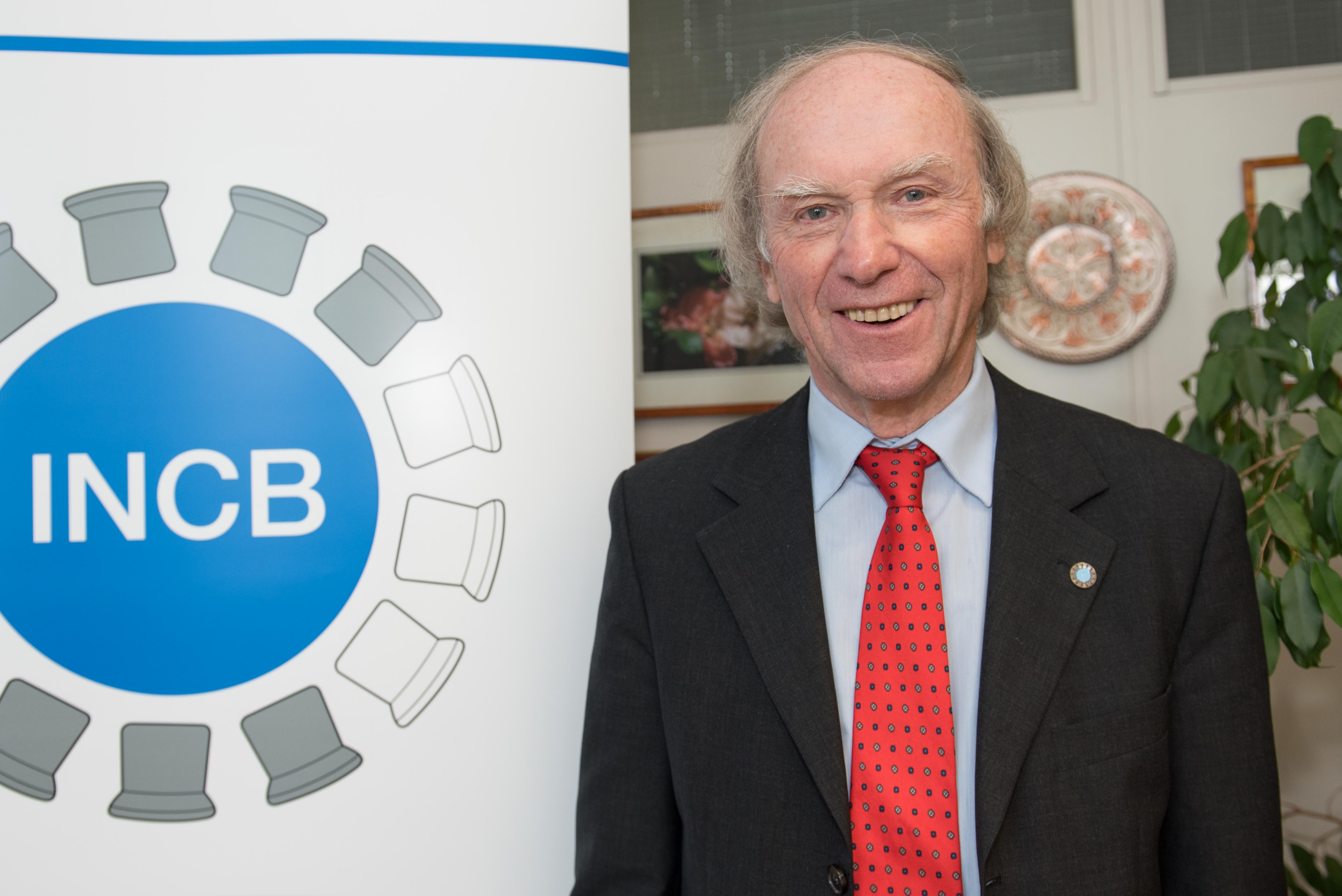
Werner Sipp. Foto via
VICE: What are the most important findings of this year's study?
Werner Sipp: The basic aim of this year's report was to highlight how important it is to view drug-related policies and programmes through a gendered lens. The available data – which is pretty limited – shows that there's an increasing number of women among young drug users and among prisoners who are locked up for drug-related crimes. Countries rarely provide women with adequate treatment – and treatment is rarely specific for women.
Why should countries approach drug use in women differently than drug use in men?
In a lot of ways, female drug users have more to battle with than male drug users. First of all, drugs have a different effect on female bodies than on male bodies – which results in a higher mortality rate among women. Secondly, in most parts of the world, a mother going to jail for drug use or possession has much more impact on a family than when a father goes to jail. Thirdly, women have a systemic social disadvantage when they're trying to get access to treatment for their drug use.
How so?
Women are much more harshly judged for drug abuse than men – especially when they're pregnant. Because of that stigma, they can be more hesitant to get treatment. And then there's the issue of child care – women who are in some way dependent on drugs may not try to find help because they're afraid of losing custody of their children.
"We're always one step behind – we can't control a drug that's just entering the market yet."
How do you think that could be fixed?
One option would be to offer more treatment services exclusively to women. When Iran introduced women-only drug treatment services, the number of women who underwent treatment increased significantly. But stigmas like this are so deeply rooted in society. You can't change that in a short amount of time – just look at how long it's taken western society to change its views on homosexuality, for example. We can urge authorities in countries to actively work against social stigmas, but that's about all we can do.
How effective are your recommendations in countries like Afghanistan, for example, where a lot of drugs are produced and state institutions are weak or even corrupt?
You're right – Afghanistan is in a very difficult situation. It's currently producing 90 percent of the global market's opium, and the government's impact on drug control has further diminished in many parts of the country. At the same time, the international community is retreating from Afghanistan, and that vacuum is filled by the Taliban or ISIS – which further undermines the government's control. The INCB doesn't have any sanctioning power – all we can do is keep the dialogue with countries open.
There are constantly new kinds of drugs invented and introduced – how exactly do you decide on whether they should be an illegal substance or not?
Oh, we're always one step behind – we can't control a drug that's just entering the market yet. Before a drug is added to the list of prohibited substances, the WHO needs to run a number of tests to prove it's actually harmful. They can test maybe ten substances a year, but there are hundreds of new substances on the market every year. We obviously need a new system for that, and how to deal with this will be one of the key questions to answer in the future.
Thanks, Werner.
More on VICE:
Inside the Criminal Trend of Stealing Laughing Gas from Hospitals
Scenes from Life Along the US-Mexico Border
The first time I stood in front of the US-Mexico border, I felt dwarfed not only by its size but also by the emotional force it wields. This was in Tijuana, at that famous viewpoint where its rusted, oxidizing bars stretch out into the ocean. I remember thinking that it didn't look so far to swim around, especially if the tide was out, and how strange it was that one of the world's most trafficked land borders was at once a heavily secured, militarized crossing and in a place where people might be able to swim across.
By now, we all know about the plans to replace that border with a larger, more intensely scrutinized fence. Donald Trump's proposed wall is estimated to take three and a half years to build and cost upward of $25 billion. There are obvious obstacles to building it—the cost, for one thing, and the topographical challenges. And then there are the people who live on the land just beyond the fence.
On the Mexico side, some people live so close to the fence they could stretch an arm out of their window and touch it; many reminisce about the greenery and the access to the river they had before the existing fence went up.
These images were taken during 2016 in various places along the Mexican side of the border, between Tijuana and Ciudad Juárez. They aim to capture some of the communities that have been impacted by the existing fence and who wonder how their lives will be changed with a new border wall.
See more of Erin Lee Holland's photography here.

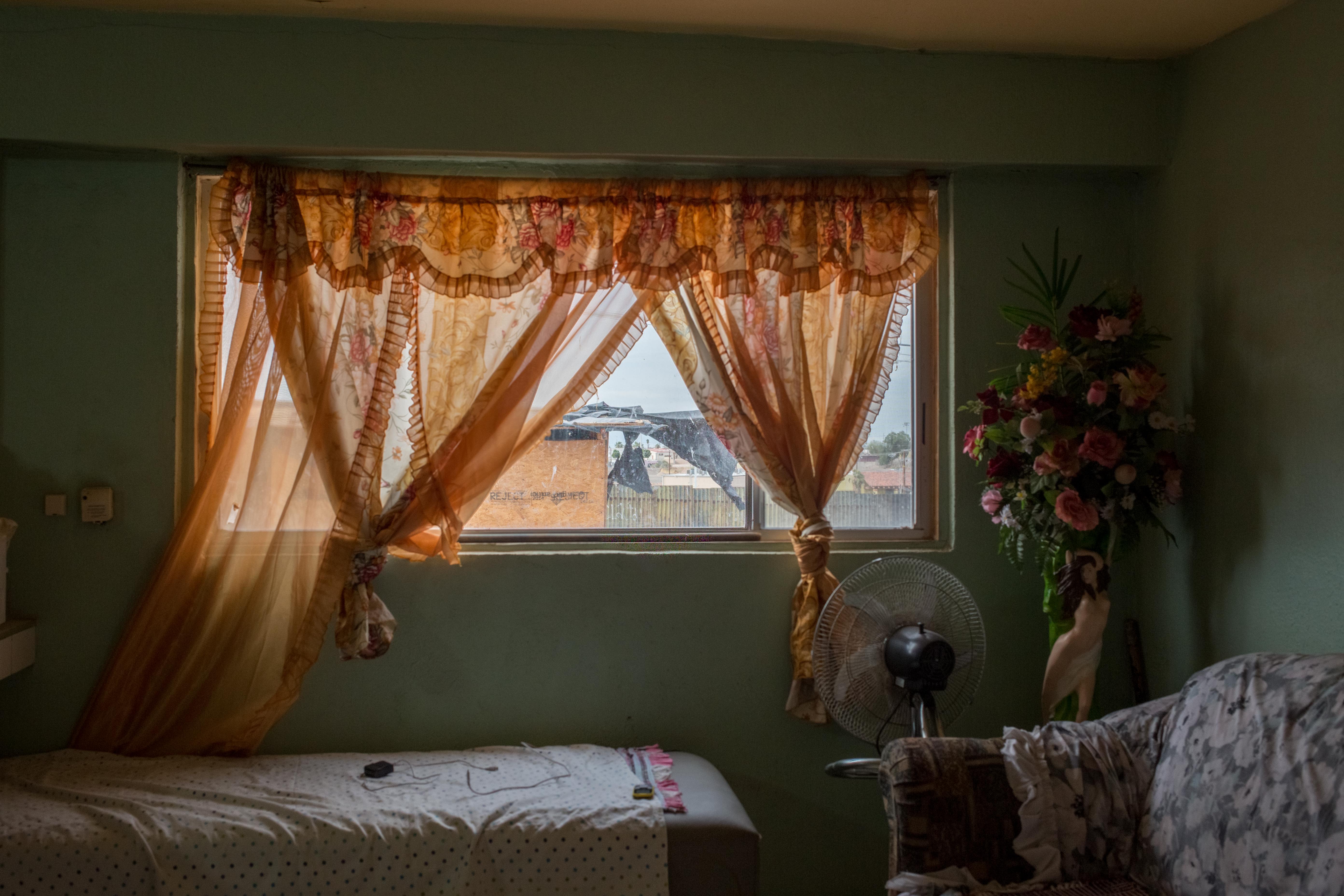
View of the corrugated iron border fence from a living room in Pueblo Nuevo, Mexicali.
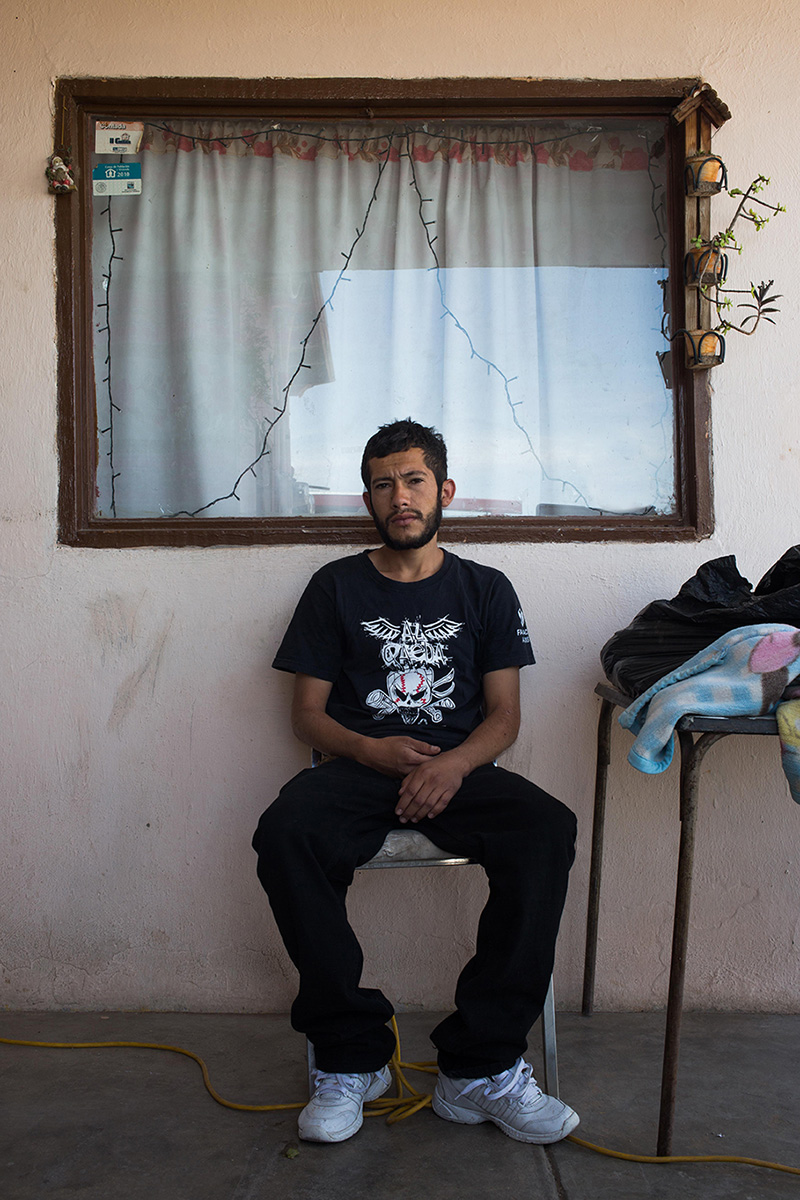
A young man sits outside his house opposite the corrugated iron border fence in Mexicali. From his house, you can see an outlet mall on the other side in Calexico, and he told me it is not uncommon to see people jump over and run to cars waiting in the mall parking lot.
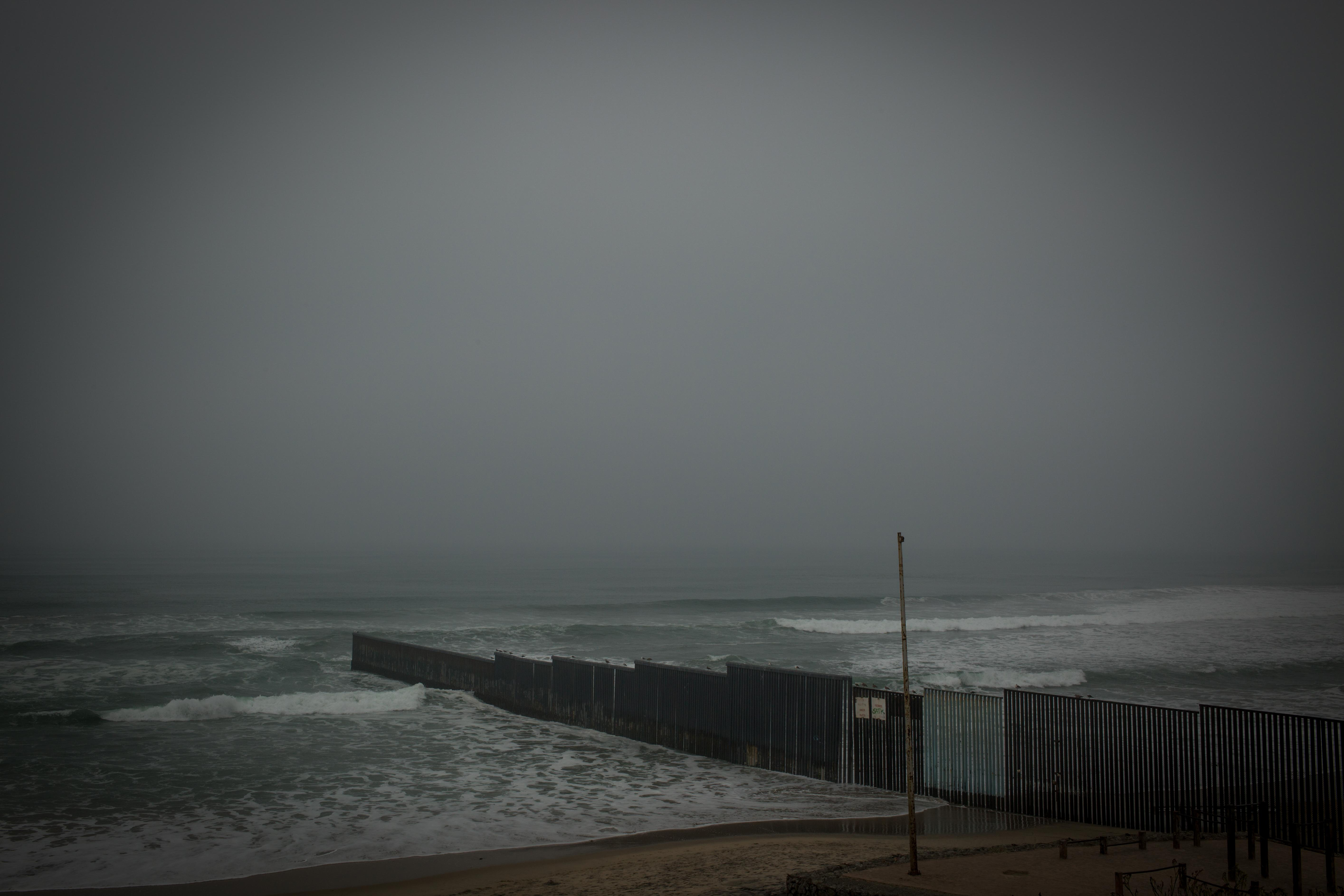
The border fence stretches into the ocean dividing Tijuana, Baja California, from California.
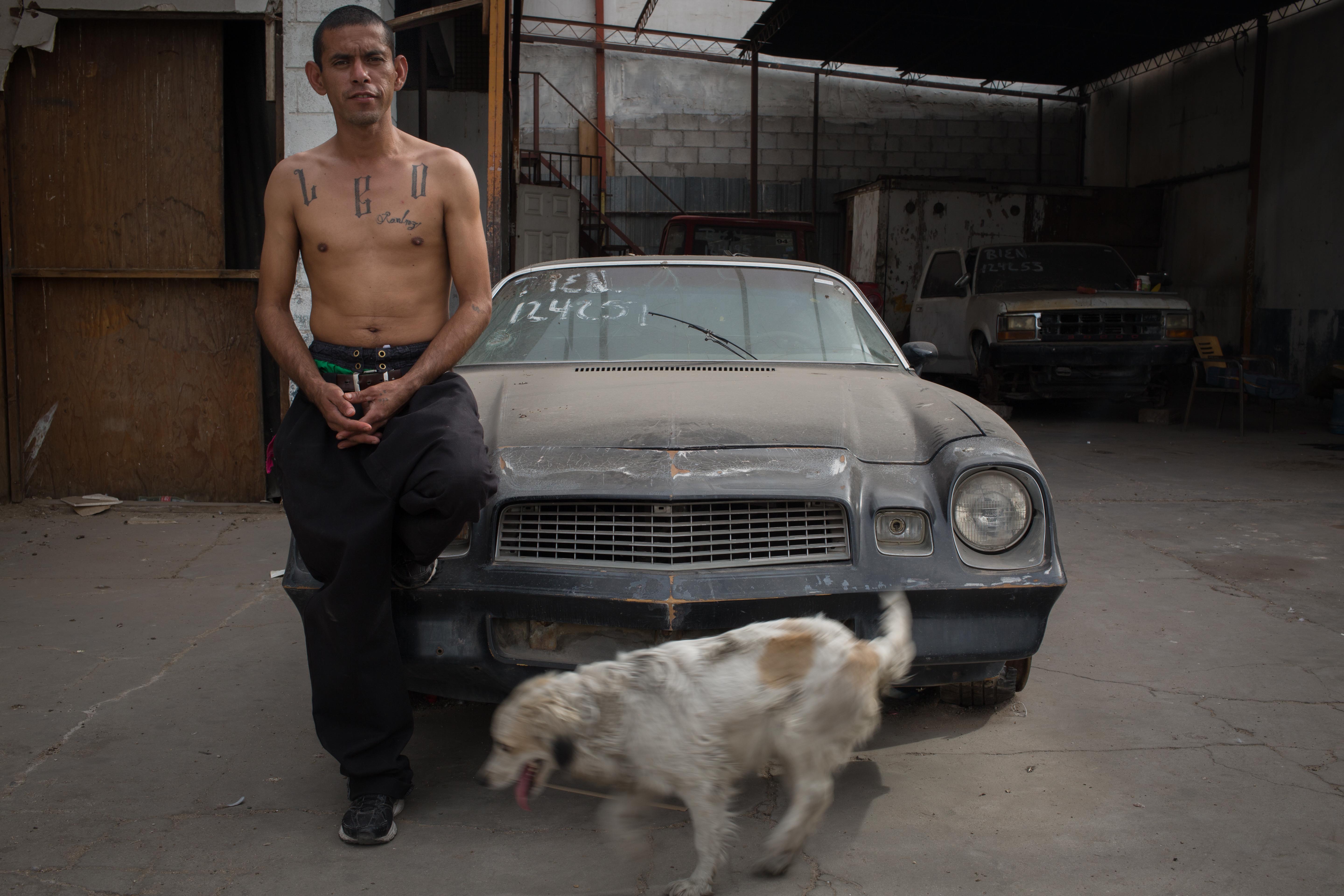
A man working as a mechanic in Mexicali, who also advertised "tunnel services" as I walked past his shop.
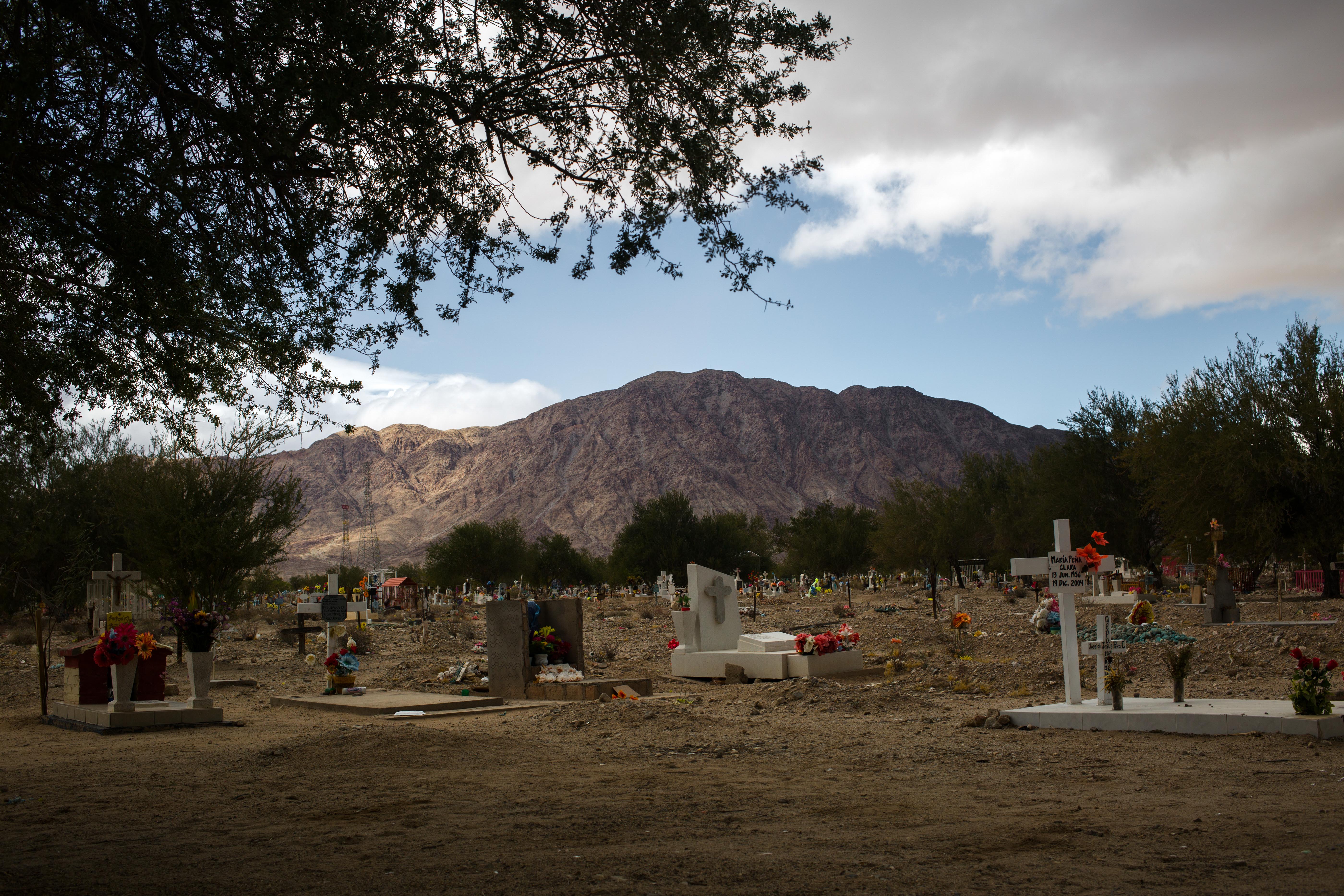
A cemetery in Tecate, Baja California, which sits beside the borderline.
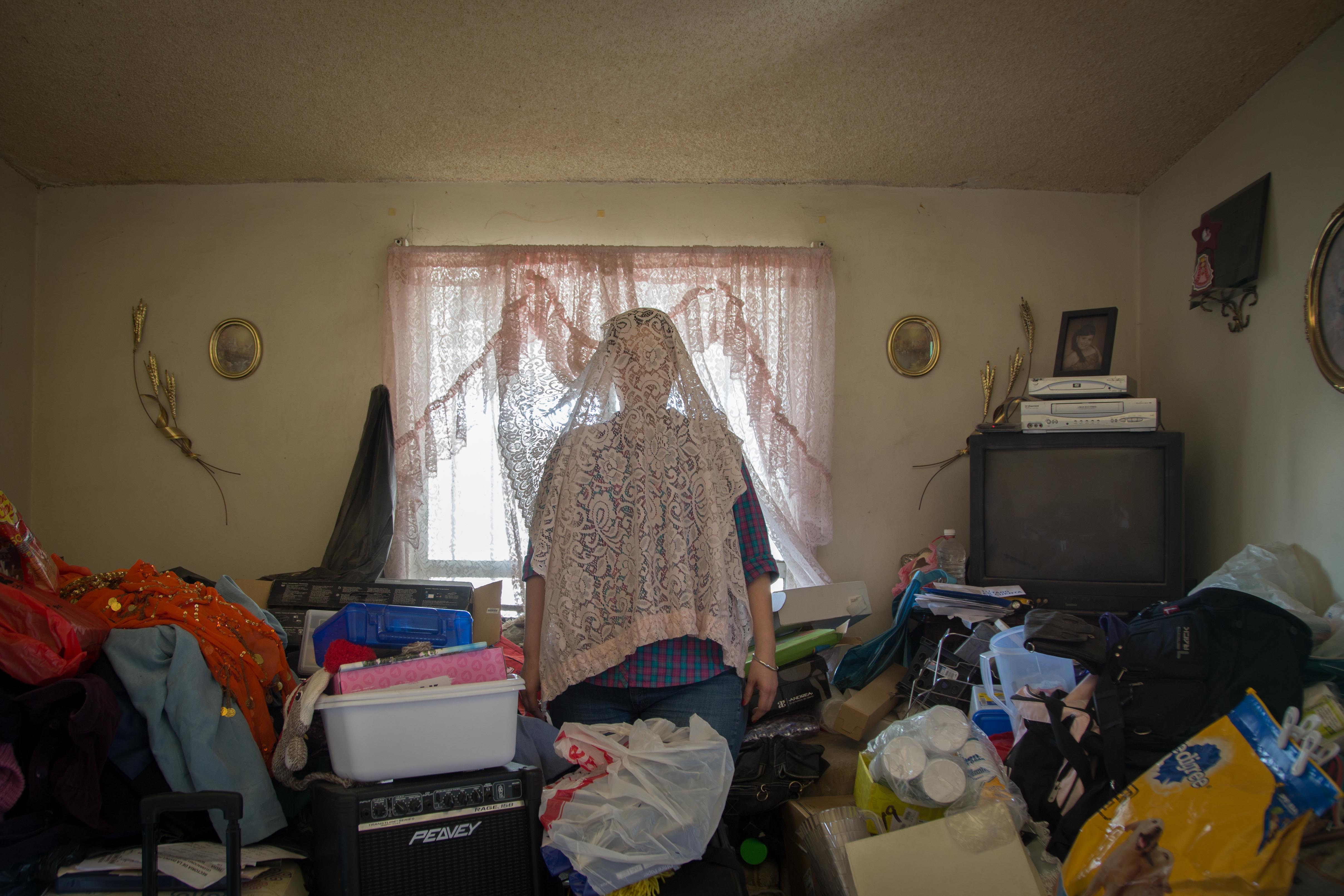
A woman who grew up and still lives in front of the barred part of the fence. Before the fence was constructed, she told me, there was a breeze and access to the river on the other side.
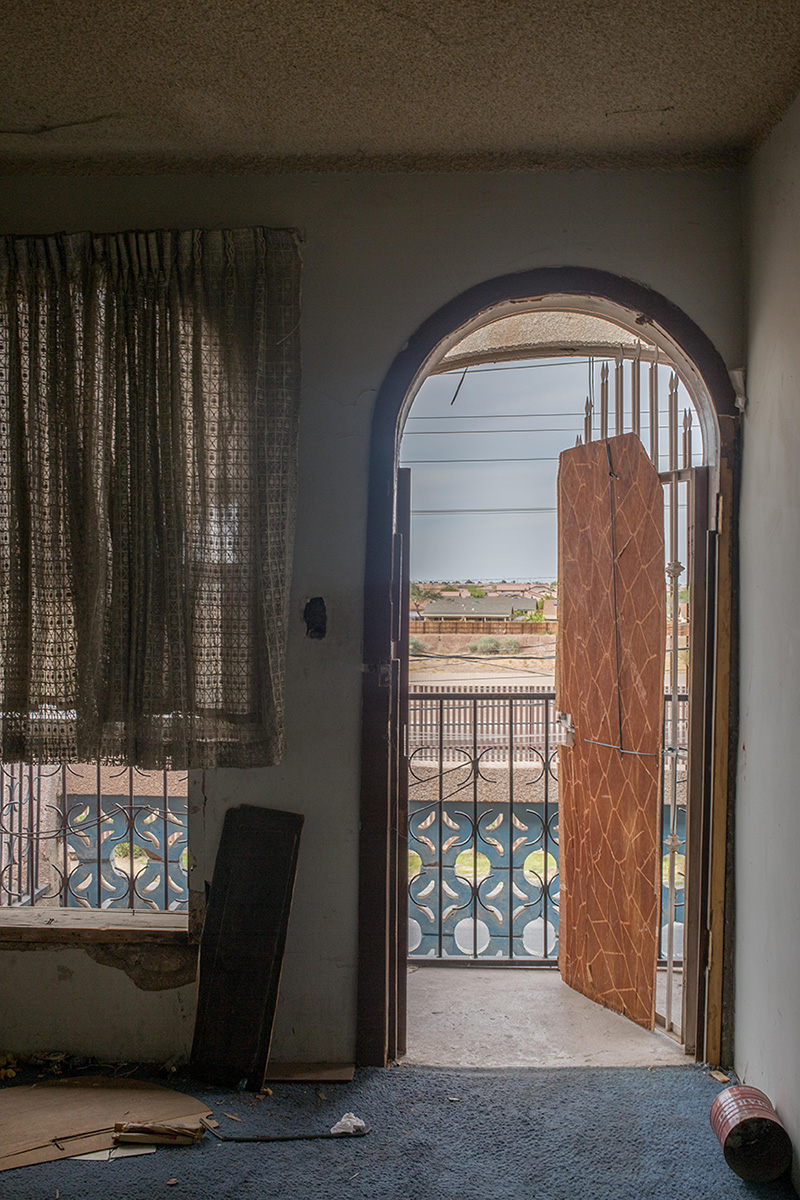
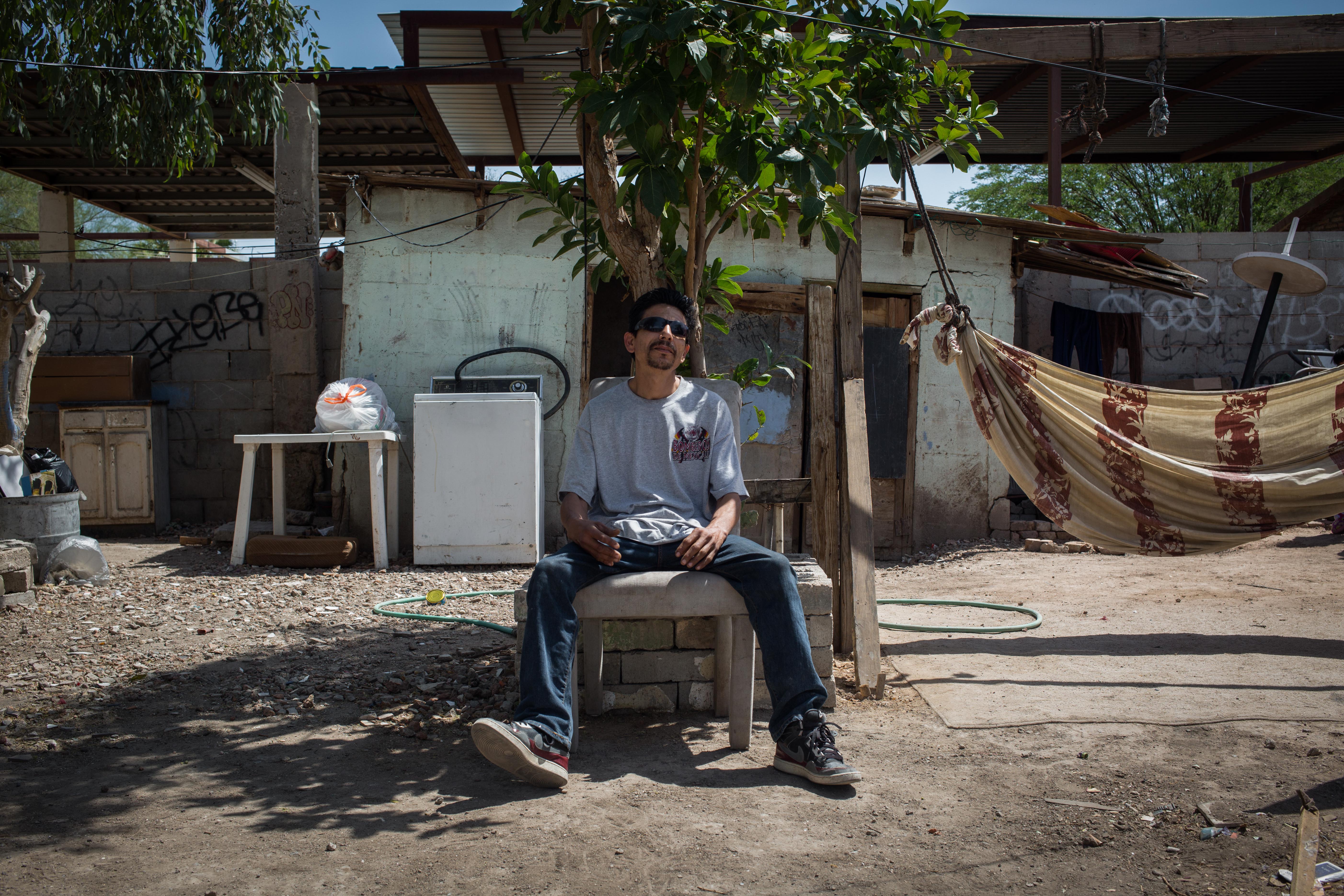
This man lives right in front of the corrugated iron border fence in Mexicali with his wife and young daughter. Temperatures during summer in Mexicali can reach up to 120 degrees, and he told me summers became even hotter once the iron fence was put up.
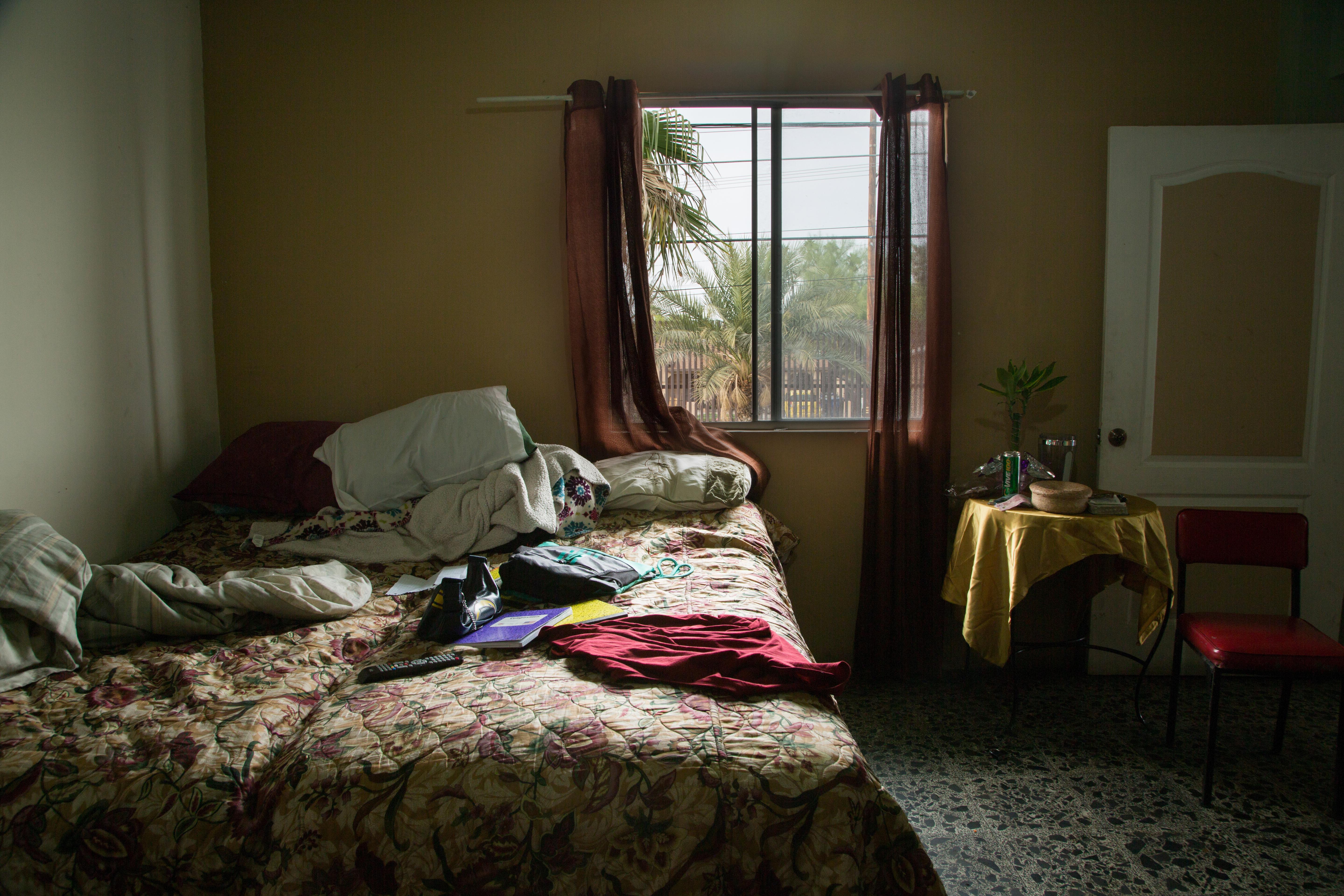
Inside the living room and bedroom of a house two blocks down from the international border crossing between Mexicali and Calexico. The border traffic lights are right outside their windows day and night.
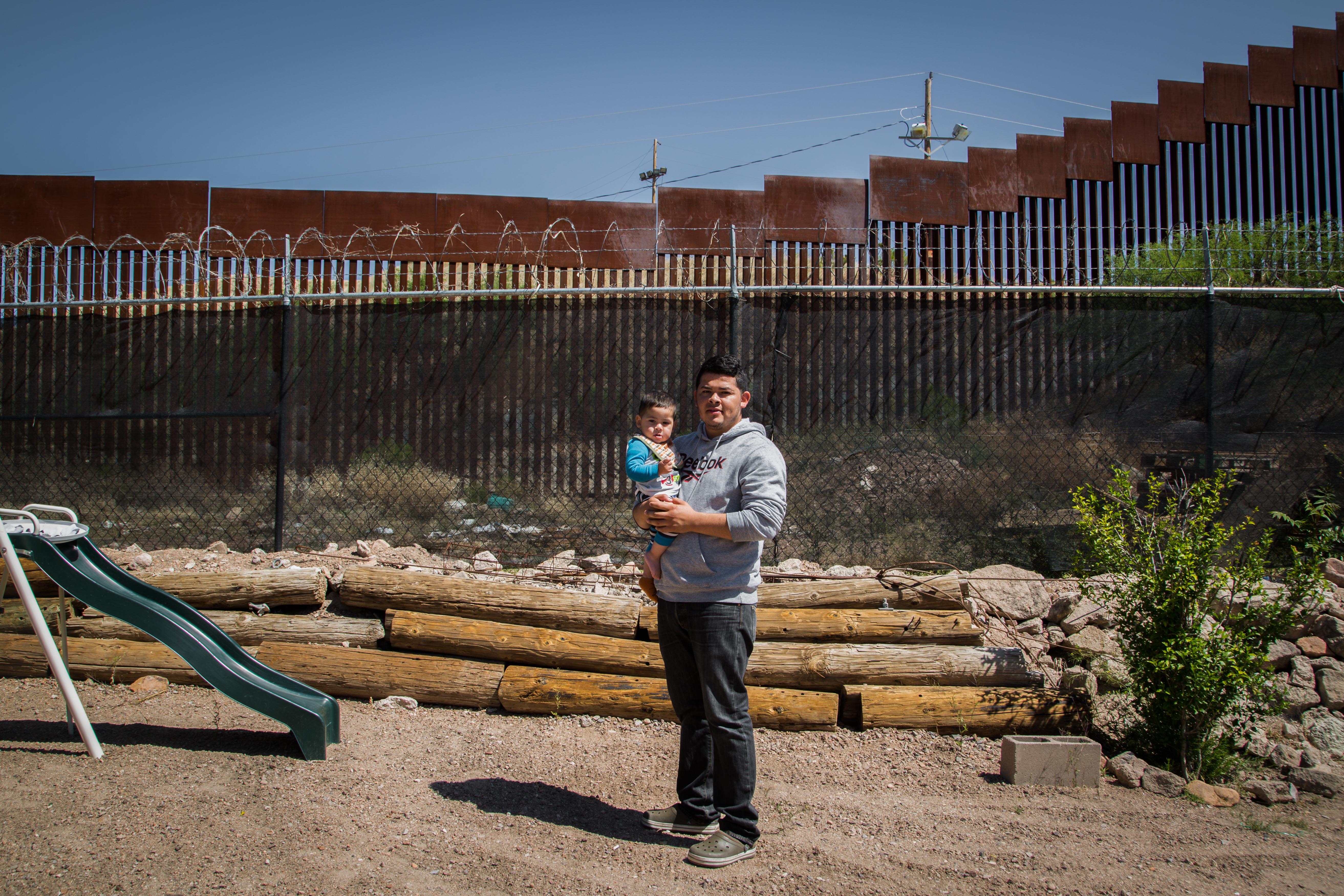
A young man with his son in their yard, which backs directly onto the border fence in Nogales
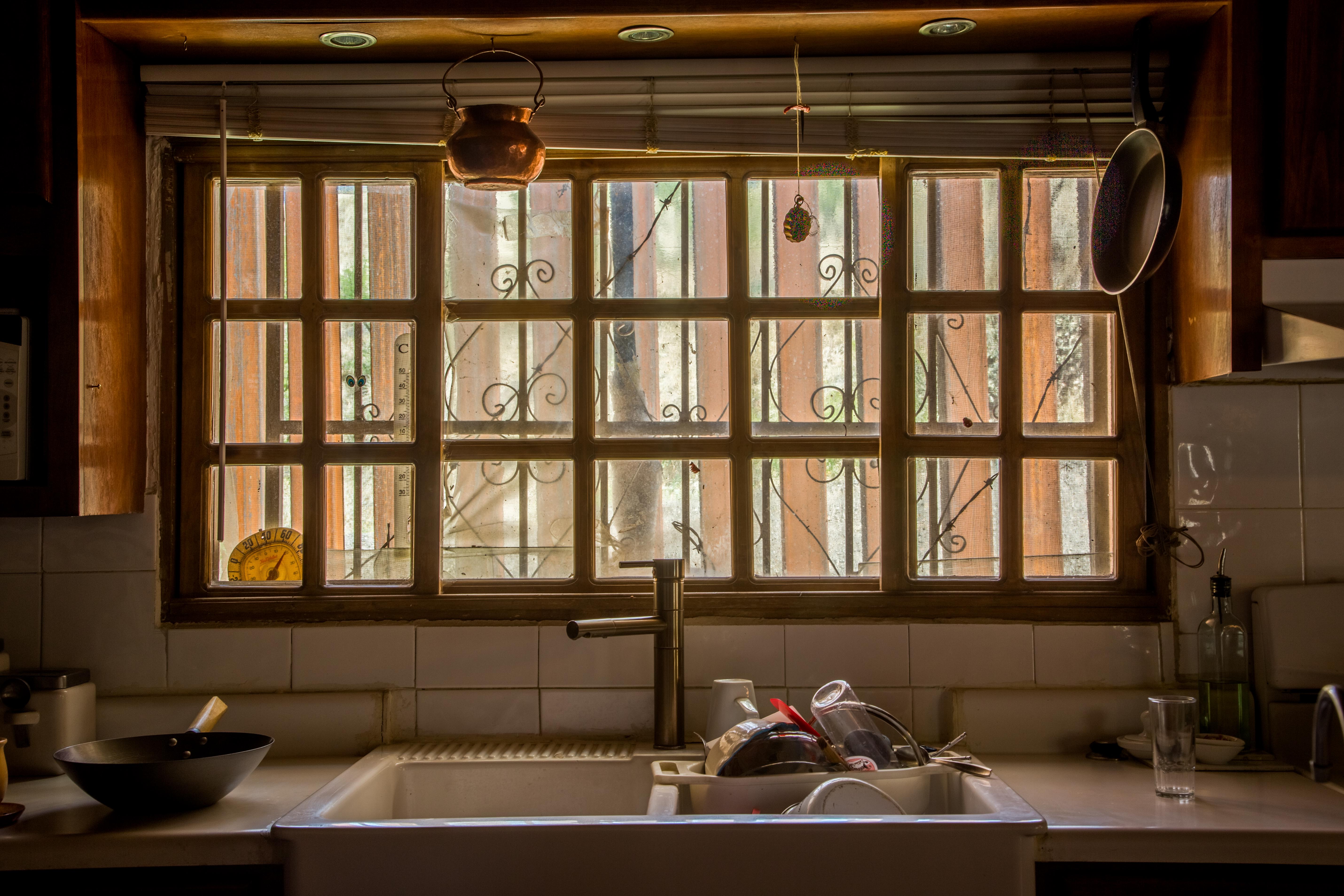
View from a kitchen window of the border fence in Nogales
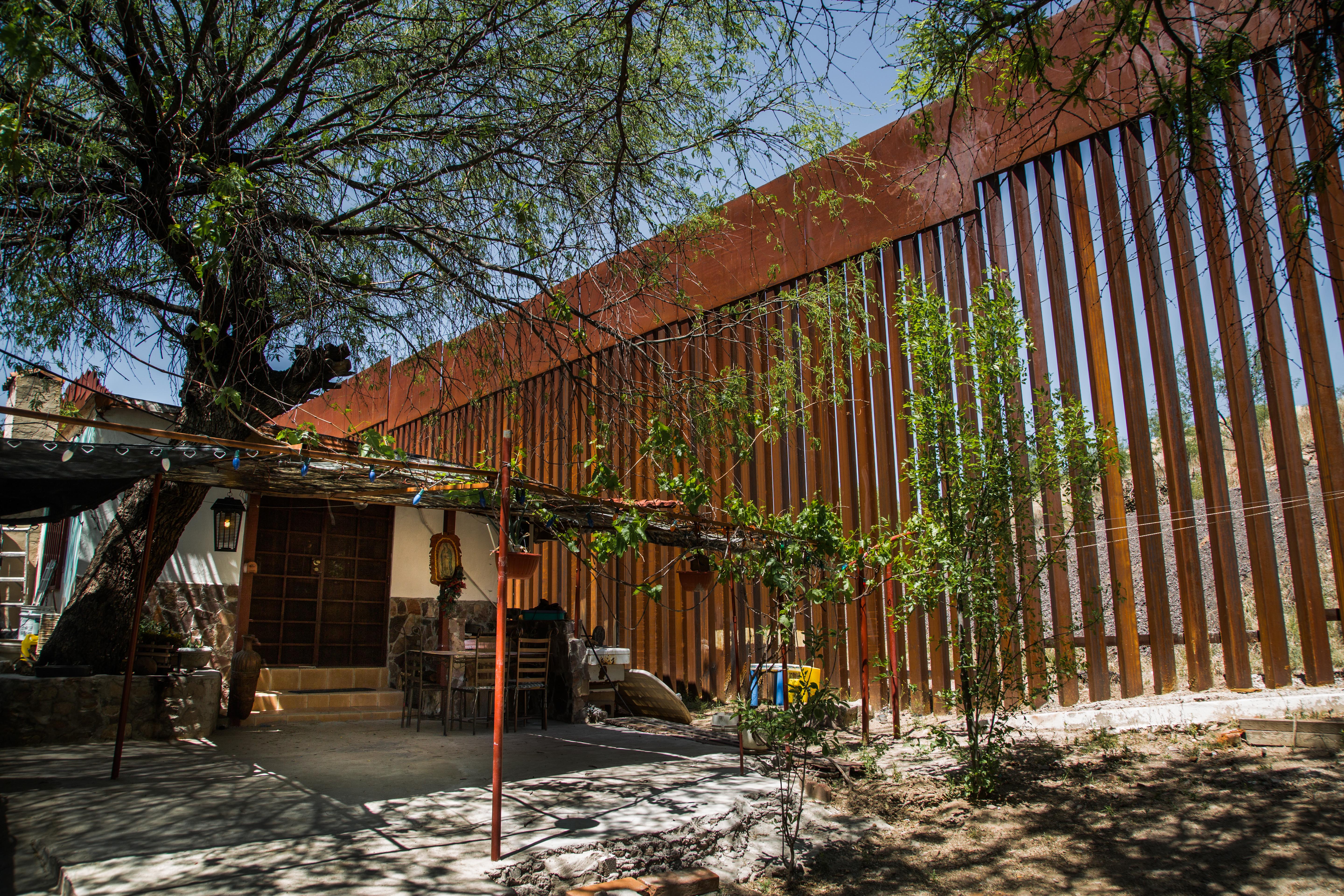
A house in Nogales built right up to the border fence.
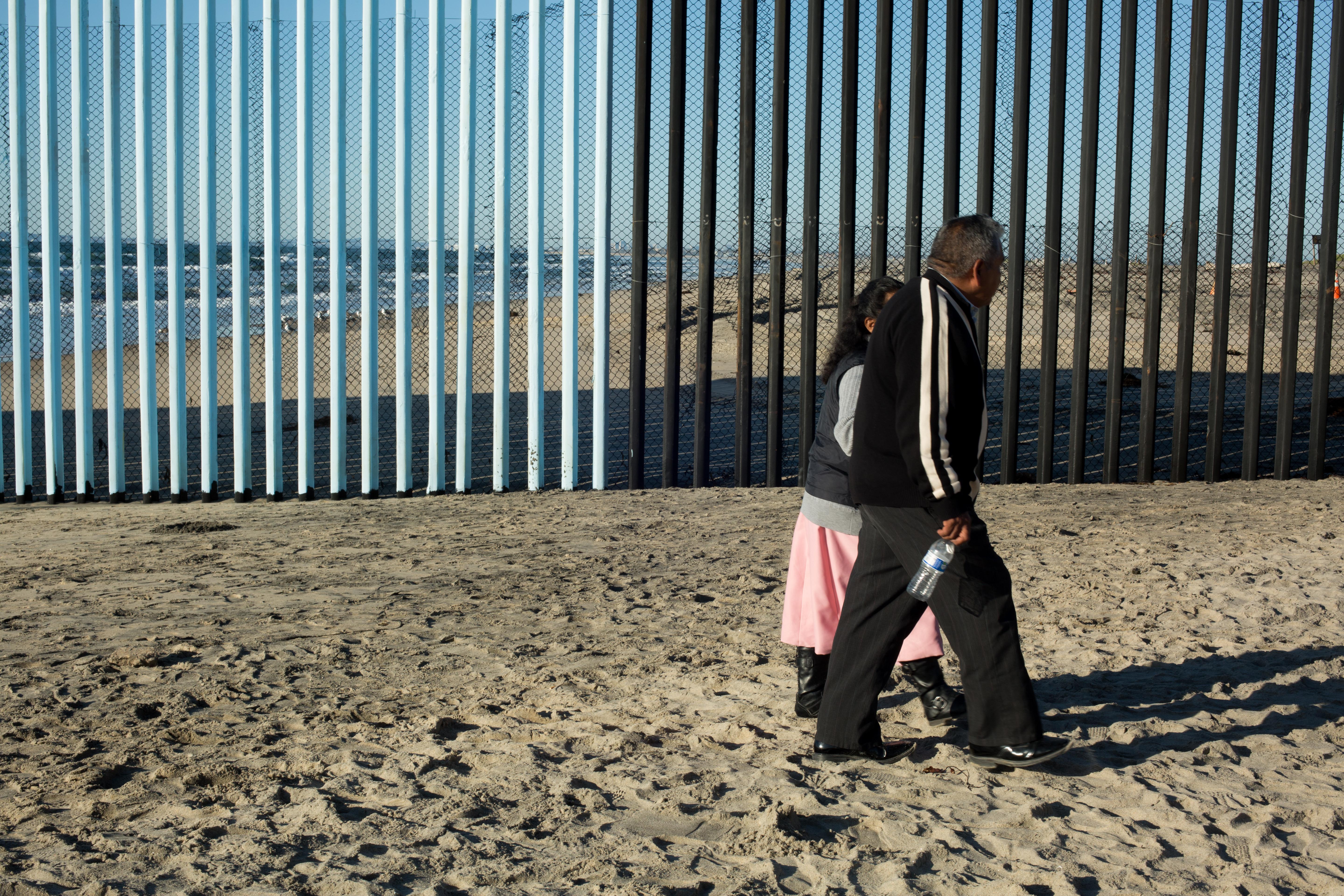
A couple walks across the beach in front of the border fence in Tijuana. Parts of the fence have been painted blue to blend into the horizon.
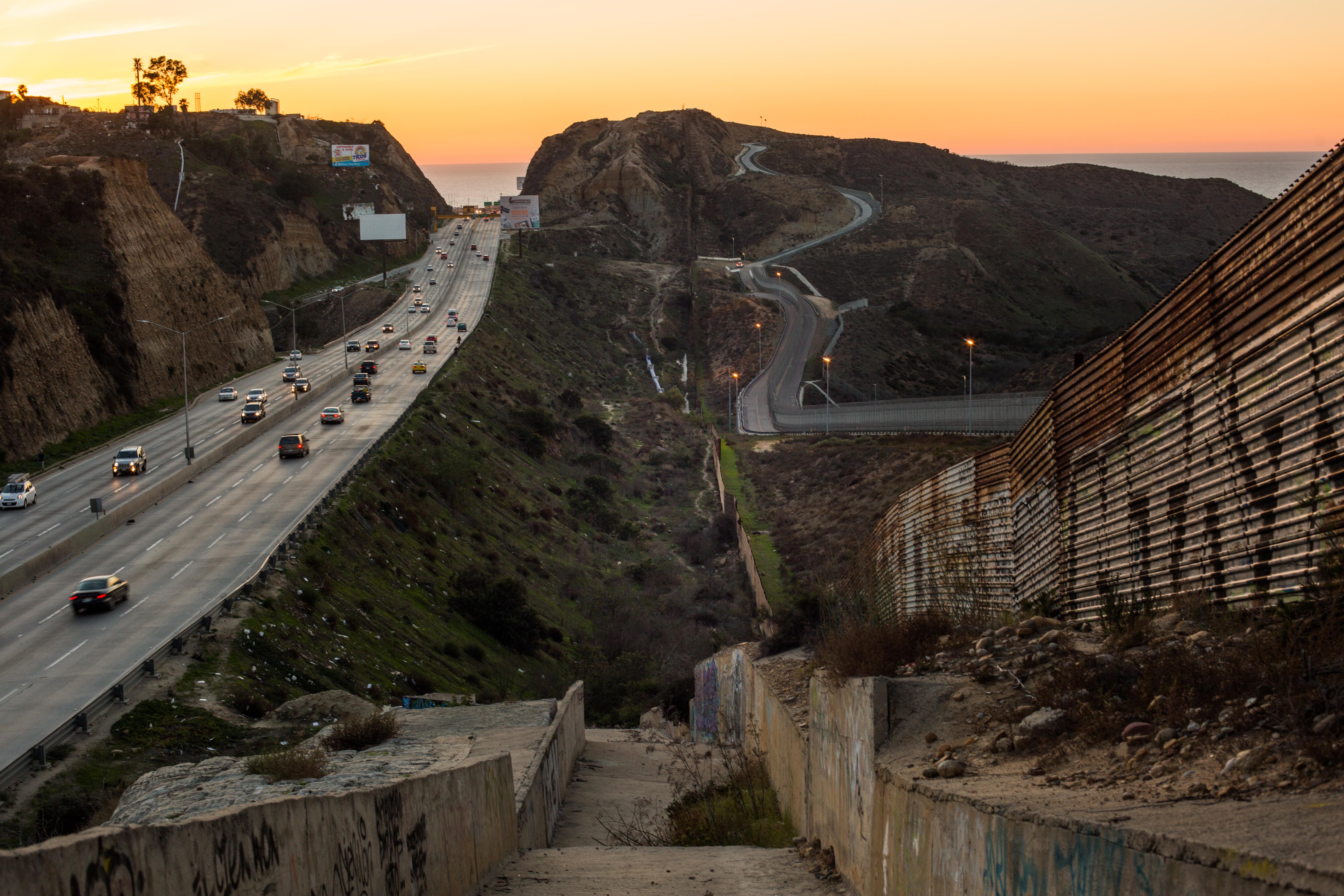
The border fence leading toward the beach in Tijuana.
Jeff Sessions Actually Might Be Chill About Weed, Maybe
Attorney General Jeff Sessions—who earlier this week said America would be worse off if marijuana was "sold at every corner grocery store"—might not be leading a federal crackdown on legalized weed anytime soon. According to Politico, Sessions privately promised some Republican senators that he will respect states' rights when it comes to weed legalization.
Kentucky Republican Rand Paul said Sessions told him privately that "he would have some respect for states' rights on these things." Paul added, "I'll be very unhappy if the federal government decides to go into Colorado and Washington and all of these places." Cory Gardner—a Republican senator from Colorado, where weed is legal—told Politico that White House officials led him to believe that they planned on continuing the Obama-era policy that allows states to impose their own marijuana laws.
"Nothing at this point has changed," Gardner said.
Over the past two months, Democrats and libertarian Republicans have grown increasingly concerned that the Trump administration might make it more difficult for states to legalize recreational marijuana. When Sean Spicer was asked about it at a recent press conference, he said, "When you see something like the opioid-addiction crisis blossoming in so many states around this country, the last thing we should be doing is encouraging people."
On Thursday, Democrat Elizabeth Warren, Republican Lisa Murkowski, and nine other senators sent a letter to Sessions expressing concern about Spicer's remarks.
"We respectfully request that you uphold DOJ's existing policy regarding states that have implemented strong and effective regulations for recreational use," they wrote. "It is critical that states continue to implement these laws."
Unfortunately, Sessions—who just this week was accused of lying about his meeting with a Russian diplomat—has still allegedly suggested that weed is worse than violent white nationalism. According to a former colleague, in 1986 Sessions said he was "OK" with Klu Klux Klan members "until he learned that they smoked marijuana." Twenty years later, we only can hope Sessions's stance on weed has softened a little bit. Moreover, let's hope that his stance on the KKK has done the reverse.
Why Universities Really Should Be Dominated By Left-Wingers
It's good we've got right-wing think-tanks to look out for these things, because according to a report by the Adam Smith Institute, our universities have a serious problem: they're far too left-wing. The report identifies a pronounced left-wing bias among academics, especially in the arts, humanities and social sciences.
This is bad – the ASI says – because "social settings characterised by too little diversity of viewpoints are liable to become afflicted by group think, a dysfunctional atmosphere where key assumptions go unquestioned, dissenting opinions are neutralised and favoured beliefs are held as sacrosanct". For this reason, universities ought to start promoting "ideological diversity", just as they would diversity of gender or race, presumably by positively discriminating in favour of right-wing academics.
There are at least three issues here. Firstly, is there really a left-wing bias among academics? It must be noted that the ASI report's methodology is far from watertight, leaning heavily on a sketchy survey studying voting intention among people with a university email address. Indeed, what ring of plausibility their hypothesis has is largely enforced anecdotally: of course university lecturers are a bunch of lefties because, well... George Orwell mentions that it's a stereotype, basically.
That said: fair enough. As someone who has worked as a university lecturer, I have to admit: my own experience suggests the anecdotal evidence is correct – academics lean more left-wing than the general population do. But that doesn't mean academia is a hotbed of revolutionary socialist sentiment. It just means your average university lecturer is pro-EU, politely liberal and in favour of some sort of economic redistribution.
Secondly, why are academics more left-wing? One answer might be: left-wingers are more intelligent than their right-wing counterparts. This is something you may have heard before because it was the conclusion of a psychological study from 2012 that still often re-surfaces as viral news. This study's general hypothesis is: stupid people are drawn to right-wing views because such views make them feel safe, insofar as they maintain the status quo.
The ASI report mentions this study, but dismisses intelligence as an explanation – largely because there is no analogous left-wing bias among people in the top 5 percent of IQ. The think-tank does, however, find a partial explanation for the bias in the fact that being left-wing correlates to what they call "openness to experience", a personality trait which, apparently, makes you more likely to pursue "intellectually stimulating careers like academia".
This notion of "openness to experience" sounds incredibly vague to me. The report defines it as follows: "People high on openness are more artistic, creative and intellectually curious, and tend to prefer novelty and variety over familiarity and sameness." But in real terms, what does this mean? Enjoying meeting new people? Being into travelling? Perhaps – but why would enjoying those things make you more likely to be left-wing? There are plenty of Tories who've been on gap years. And why would they make you more likely to become an academic? I know plenty of brilliant scholars who can barely stand to be in a room with unfamiliar human beings.
The "Ivory Tower" exists, but few university lecturers are trapped in this bubble at all times. And the world outside this bubble? Incredibly right-wing, and getting more so.
The seed of plausibility in this explanation consists of the fact that being "open to experience" suggests enjoying – and celebrating – diversity: of lifestyles, behaviour, opinions, whatever. Which of course would correlate with "not being a racist piece of shit" and "wanting to work in a cosmopolitan environment" (like a university campus, for example). It also, crucially, entails wanting to think imaginatively and creatively about the world around you – which of course is vitally important if you're going to carve out a successful career in the academic humanities.
But then, equally, the report wants to trace at least some of the causes of left-wing bias in academia to what it calls "social homophily" – namely, "the tendency of individuals to associate with those who share their characteristics". And of course, their general picture of universities is of "ideologically homogeneous" places in which every member of staff is obliged to parrot the leftist party line on pain of being "shouted down" by their colleagues.
On the one hand: what exactly is it about right-wingers that makes them think being told to shut up is the worst thing that can possibly happen to you? On the other: the report just seems to be directly contradicting itself here. Academics are open to different views and like diversity, but they also instinctively marginalise any dissenting views they encounter in their place of work? What gives, academics?
As far as I can tell, the ASI's mistake is that they seem to be assuming no academic ever has anything to do with anyone who is not employed by, or studying at, a university. The "Ivory Tower" exists, sure – and academics in general could certainly do more to communicate their research to a general audience – but few university lecturers are trapped in this bubble at all times. And the world outside this bubble? Incredibly right-wing, and getting more so.
In fact, it strikes me that the academic humanities are exceptional among skilled professions in that they involve comparatively little collaboration with this deeply Tory external world. This, to my mind, constitutes the best explanation as to why so many academics should be left-wing: because it's one of the few intellectually stimulating professions in which being a Tory doesn't help. The ASI report mentions this as the idea that jobs can become "politically typed". Intelligent, ethically-minded left-wingers are likely to become academics – because otherwise they'd have to, I dunno, become a management consultant, or write for VICE.
All of which brings us on to the third issue, namely: is this left-wing bias in academia a problem? To which my answer is, as you might expect: of course not. The problem, in fact, is that the rest of the world has a pronounced right-wing bias. And, as I've already quoted the ASI as identifying above, "social settings characterised by too little diversity of viewpoints are liable to become afflicted by group think, a dysfunctional atmosphere where key assumptions go unquestioned, dissenting opinions are neutralised, and favoured beliefs are held as sacrosanct".
Undermining one of the few sanctuaries of left-wing sentiment we have left would only compound this issue. If the ASI actually believe their own rhetoric, they ought to set their sights on government; banking; journalism; big business. Leave our already marginalised universities out of it.
Digging Deep Into the Only Conspiracy Alex Jones Doesn't Like
I hate patriotism. I can't stand it, man—makes me fuckin' sick. It's a round world last time I checked. - Bill Hicks
Bill Hicks was the angry voice of reason for the disenfranchised and foul mouthed street criminals of his time—he was the man who smoked in the face of cancer. If you don't know who Bill Hicks was, do yourself a favour, click into a new tab, Google the comedian, and watch everything he ever did as the man was a savant imo (then come back and read the rest of this article, please.)
Sadly though, the world only got to listen to his ramblings for a mere 16-years as he died from pancreatic cancer in 1994 at the young age of 32, however, in his short time above ground Hicks proved to be one of the most influential comics of all time. And as with any well known person who dies young—especially a controversial one—rumours have run rampant following his death.
In the case of Hicks' death, none of those rumours are more prolific, and bizarre, than the notion that Hicks faked his death to become conspiracy monger Alex Jones. A quick Google search will bring you to hundreds of blog posts on the topic and self made videos crowd youtube as theorist attempt to further the conspiracy. While it's truly an intense amount of crazy, the idea has lived on the internet so long that—apart from the true believers—it has become an in-joke for redditors, channers, and a rogue crew of Alex Jones fans (potato-men?).
Most importantly though, this conspiracy seems to really fucking annoy Alex Jones—a 9/11 truther who has spread the notion that the kids killed in Sandy Hook were actors and the Quebec mosque shooting was a false flag attack.
"I'm sick of hearing about Bill Hicks," lamented Jones on a recent appearance on the Joe Rogan Experience. "It hurts me that they're so dumb, they don't know I'm my own person, Alex Jones."
So, with that annoyance in mind, why don't we take an in-depth look at the theory?
The idea's first major appearance on the web was in 2006 in thread posts form on the forums Godlike Productions and Doppelganger and Identity Research Society. The theory, like all good conspiracies, is fractured as hell, so in order to explain I'm going to attempt to compile the most widely "accepted" ideas. First things first, the question of why Hicks decided to give up the possibility of being the voice of a generation to become a potatoman by the name of Alex Emerick Jones.
One massive branch of the theory revolves around a man named Kevin Booth. Booth's production company, Sacred Cow Productions, was behind comedy films for the likes of Hicks, Rogan, and Stanhope—and Booth also produced Hicks' posthumous comedy records. It was co-founded by Hicks and Booth in the early 90s but, since the comedian's death, it's one shining star has been, you guessed it, Alex Fuckin' Jones. So, long story short, many believe that Booth is actually the man with the plan who had Hicks switch up characters much like in pro wrestling.
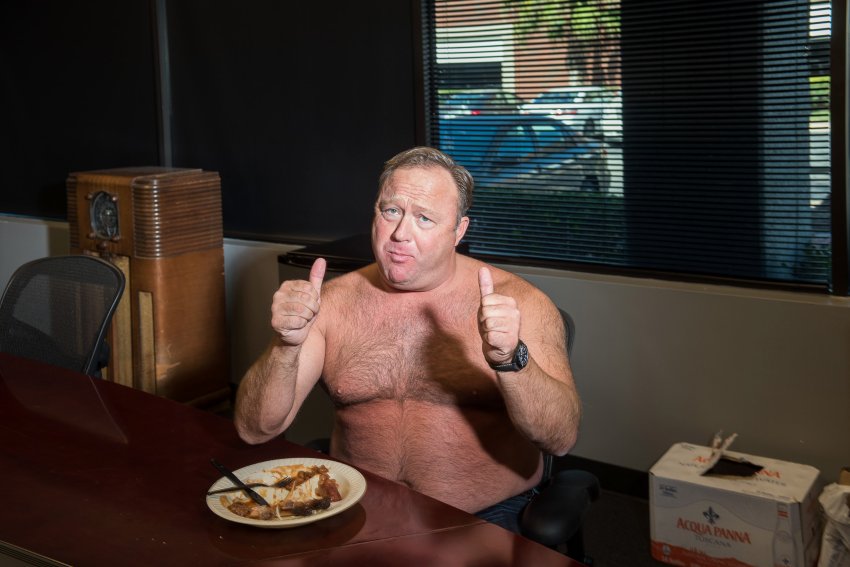
Man Bill, you look as virile as ever. Photo via Twitter.
Another widely held explanation by the theorists on why Hicks decided to play the character of Alex Jones full time is, well, they say Jones is a CIA disinfo agent put into the AM shock jock scene to discredit actual radio hosts. Here's a portion of a popular blog post explaining it:
Evidence indicates that Bill Hicks transitioned himself into a new 'right wing' talk-radio conspiracy-minded shock jock just as some in government were raising the alarm about Timothy McVeigh 'lone wolf' type domestic terrorists being inspired by AM radio talk jocks. Also it was the advent of the brand-new internet-era and so the timing was perfect to insert a glib provoking-agent into the 'alternative media' scene— someone who could get out front and the lead patriotic Americans around in circles. And so Bill Hicks apparently went to work for the CIA— transforming himself into Alex Jones, the new 'info-warrior'.
In order to become a new man, the theorists posit that he utilized "plastic surgery, testosterone, growth hormone, larynx surgery, and cosmetics." However, the one thing that people freak out about is that Jones and Hicks seemingly have similar teeth (seriously, a lot of work has gone into proving they have the teeth thing,) they have also done vocal comparisons and believe Jones' voice is the same as one Hicks used, at times, in his comedy.

Some dude even made a gif about the teeth! Photo via dublinsmickdotcom
There is, of course, the bonkers list of reasons that are IRREFUTABLE PROOF that the two are one man, this includes them having similar moles, having similar heights and facial profiles, people mistakenly calling the host "Bill" on-air, Jones' jocular references to himself as Hicks, the fact that Jones came out of nowhere for his first radio show in 1996, and, shit you not, the idea that Jones' middle name, Emerick, is the taken from Geoff Emerick the—Beatles producer who "killed Paul."
The Jones/Hicks truthers have also gone to the uncomfortable level of insanity of digging through Jones' birth certificate and other documents to see if it they're fake—which considering Alex Jones' role in the birther movement, is actually pretty fucking funny. The theory has even climbed the wonderful meta peak only certain conspiracies are able to ascend, with some theorists musing about the idea Jones may have started and propagated the theory himself to discredit accurate conspiracies about him.
But, perhaps the main driver of Jones' annoyance with the whole goddamn thing is the idea that the little potatoman looks far older than he is. Jones is currently 43 years-old while Bill Hicks would have been 55-years-old and the theorists are convinced Jones looks far older than he says he is—which is kind of insulting, I guess.

Yeah, I get how this would annoy him. Photo via dublinsmickdotcom
There are some similarities, the two are both are immensely intense on the mic, share a little bit of a similarity in looks, both are from Texas, and Hicks did tend to enjoy a conspiracy theory. However, with the recent change in Jones' politics the two now exist on drastically different poles politically.
While at the beginning of his career, Jones didn't have a hard time seeing conspiracies on both sides of the political spectrum—much like Hicks—as of late, Jones has giddied up to the nationalistic establishment by softly nuzzling Trump with the warm kindness of an old dog looking for his owner's hidden peanut butter. This, frankly is something that one would have a hard time seeing a consummate hater of the state like Bill Hicks do.
Still, though, despite it being utter bullshit, the conspiracy is so prolific that people will, sometimes in public, only address Jones as Bill or come up to him in restaurants and repeat Hicks name until Jones looks at them. With that apparently happening all the time, Jones said he's straight-up done with the conspiracy and furthermore, he said it annoys the family of the great comedian.
"Bill Hicks is in the ground folks," said Jones on his radio show in 2014. "Kevin [Booth] was there when he died. This isn't funny, this is sick."
Overall, the theory is, for lack of a better term, banana-pants crazy-town, and Jones is right—the notion that Hicks never truly died is truly disrespectful to the late great Hicks and his family, and it's good that Jones can see that.
It's just a shame the man doesn't extend that same respect to the 20 kids shot dead in the Sandy Hook Elementary School.
Follow Mack on Twitter.
Meet the Godfather of Indian Pizza
There is a persistent rumor in San Francisco that Zante Pizza & Indian Cuisine, birthplace of the distinctly regional phenomenon known as "Indian pizza," is run by one "Mr. Zante," a dark-haired man of indeterminate age who blends the affable bravado of Bollywood's Shah Rukh Kahn and the sphinx-like calm of a young Omar Sharif. While I'm almost entirely sure I've made this up, it seems just as likely to be true as the story I'm told by the man who serves me a slice of chicken tikka masala pizza on a Friday afternoon.
According to him, the fusion—an unbelievably effective hangover remedy (trust me, I know)—was invented and is made every morning by the shop's delivery driver, Singh. He would be in at 5 PM. When I return later in the week for an interview, I'm relieved to find this is not at all true. Tony, the restaurant's owner, greets me with a laugh. "Who told you that? He doesn't know anything!"
Despite looking more like James Gandolfini than Shah Rukh Kahn, the North Indian has at least retained the look of indeterminate age that I'd imagined. He was born Dalvinder Multani, he tells me, but he's been "Tony" as long as he can remember.
"I think I went from Multani to Tony? Everyone who knows me knows me as Tony."
Continue reading on MUNCHIES
No One Knows Anything About Giraffes
Put anything in front of a webcam, and people will stare at it. That's been true since the earliest days of the internet, when people around the world inexplicably tuned in to watch a livestream of a coffee pot at Cambridge University, and it was still true still last summer, when people waited with bated breath for corpse flowers to bloom at botanical gardens in New York and DC.
The maxim still holds. On February 22, a park in Harpursville, New York, launched its "Giraffe Cam," and ever since, the number of people watching and waiting for April to birth her fourth calf has hovered at just more than 100,000. But now that it's been more than a week, the meme makers of the world are growing impatient. Internet denizens have famously short attention spans, but in this case, feelings of betrayal seemed warranted: A giraffe in Denver gave birth to a smirking calf named Dobby last week seemingly out of nowhere. Still, I was able to withhold my suspicion until about noon today, when a zookeeper came onto the stream and stared at April's crotch for a few minutes before walking away.

All of this made me wonder: Does anyone know what is going on with this giraffe? Or giraffes in general? Why are elderly ones on birth control catching zookeepers by surprise, while ones set up with reality shows aren't doing shit? Why does April spend all of her time staring longingly at her alleged co-parent, Oliver, if she's already knocked up? "He is a bull - and a bull is a bull is a bull!" the YouTube description for Giraffe Cam taunts like an Cheshire cat. If the powers that be were going to feed me tautologies out of 1984, should I believe their giraffe was pregnant, just because they said it was?
Anyway, I decided to poke around and see if anyone could tell me some basic information about what the holdup might be. My mission was to find out if zookeepers only know marginally more than the rest of us. To begin with, April the giraffe is not exactly bursting at the seems as compared to the giraffe in this picture, which, by all reasonable standards, is extremely and obviously pregnant.
So as my first foray into fact-finding, I contacted the respective zoos in Denver and Harpursville. Sean Andersen-Vie at the former hit me with some stats about their giraffe who just gave the sneak-attack birth.
"It looks like we weighed her on February 26, and she was 1711 pounds," he told me. "Dobby was born at 73 pounds, roughly half what an average giraffe weighs at birth. Around the time of conception, it looks like she was around 1,545." Meanwhile, a representative at the park hosting the livestream said April was about 2,000 pounds at the moment. The math, at least, seemed to check out.
But the skeptic in me persisted. After all, couldn't someone just google "average giraffe weight pregnant" and pass that info along to any curious party? Feeling that his answer didn't necessarily prove much of anything, I knew I had to dig a little deeper.
In this case, digging deeper meant reaching out to a third party. The obvious option was to reach out to a neutral, third-party zoo, like the famous one in the Bronx. "I'm writing because I'm putting together a story and need to speak with someone who has expertise in how giraffes behave in captivity and who can answer basic questions about their reproductive process," my very simple query read. A man replied very quickly to ask what the story was about, to which I explained, "What's normal for a giraffe that's pregnant, and what giraffe behavior in captivity is like."
My crucial mistake, apparently, was referencing the livestream upstate.
"We wouldn't be able to speculate on behaviors of an animal in another facility or make comparisons without knowing more about the conditions and care at this location," he replied. "Sorry."
To be clear, the questions I wanted to ask were along the lines of:
1. At what age is a giraffe considered sexually mature? When's menopause?
2. Do older giraffes have babies that weigh less?
3. Do giraffes ever hide their pregnancies?
4. Do giraffes have "due dates?"
I also sent out my query to the Philadelphia Zoo, the Long Island Game Farm, Virginia Safari Park, the San Diego Zoo, and the Henry Doorly Zoo in Omaha, Nebraska, to NO RESPONSE. Honestly, I would think that these questions could be answered by opening up a Zoobooks on giraffes, so the fact that no one would/could answer them means that either a) there is an Illuminati-level conspiracy surrounding April the giraffe or b) no one knows even the most basic details about how giraffes work.
Operating on the assumption that the zookeeping profession was a sham, I reached out to Stephanie Fennessy, who's the director of the Giraffe Conservation Foundation (a.k.a. not a shill for Big Zoo). She immediately provided some helpful information: Giraffe pregnancy should be obvious to the trained eye. Hmm...
Beyond that, though, she couldn't tell me if April might be hiding her baby bump from the father, Oliver the bull, or if she might be pulling the same stunt as this panda who faked pregnancy to get more food.
"We don't have expertise on captive giraffe," she explained. "I have tried to answer some of your questions below, but I fear you might be trying to anthropomorphize giraffe here a little and maybe better to chat with a zoo expert."
I was back where I started, being told to consult the Big Zoo operatives who had stonewalled me.
"And say hi to your colleagues from the giraffe!" the person who had literally just accused me of trying to imbue giraffes with human-like qualities taunted as her sign-off. I took her condescending tone as evidence that she was trying discourage me from continuing my mission––and therefore that I must be getting close to the Truth.
I've been watching April on the Giraffe Cam for seven days and have seen no indication that this skinny bitch is any closer to giving birth than she was on February 24. The zookeepers of America refuse to disclose why, and the world's foremost experts say they can't help. What are they trying to hide?
Follow Allie Conti on Twitter.
How Twitter Ruined Swearing
The world screams its anger, and it screams cockwomble. You might have seen the word before, lobbed with dull precision by some agitated man on social media, and you thought it was brilliant and decided that you should start using it. As an epithet it feels oddly satisfying, front-loaded with those nice sharp voiceless velar stops, and then dropping away into a mumbly wombly mush. It's clever, a kind of plummy cleverness; this is not any ordinary word, but something that had to have been invented, probably by someone very smart, someone like Stephen Fry, and if you say it too you might be considered a little bit smart as well.
It's almost a class marker: the swearword of someone who would never let themselves get angry enough to resort to mere vulgarity, to say something as uninventive as fuck; the cockwomble-sayer wants to float above her enemies on a roving cloud of gentle and untroubled disdain. A word neatly split down the middle, apologising for itself in its own second half; so quintessentially British. And while it's everywhere on Twitter, search major news sites for cockwomble and, aside from a mention in (of course) the Spectator, you'll invariably be directed below the line. Cockwomble is the Guardian comments section condensed into a single word.
It's sickening.
It has its cousins: spunktrumpet, arsebadger, dickweasel. All the quiet little woodland creatures we're busy eradicating have reappeared without warning in our language, a ghostly reminder of what we did to the world. Cockwomble is a word in mourning for a power we lost, a polysyllabic bloom of rot on the corpse of swearing as a literary form. The word cunt still has some power to shock, just about, if it's thrown with enough sharpness and spite, but nobody has ever been really hurt by being called a cockwomble, the word that neuters itself down the middle. Everywhere people are enraged, and lack a language in which to express that unhappiness; their desperate efforts to thrash themselves out of the general unhappiness only leave them sinking in deeper. That's why we have Brexit; that's why we have cockwomble.
What we're witnessing might be the finial crisis of swearing. Our old swearwords, shit and piss, are relatively recent innovations – not as words, but as expletives. In the Middle Ages the landscape of vulgarity was very different: towns across the country had their own Gropecunt Lanes and Pissing Alleys; Sherborne Lane in the City of London was once Shiteburn, named after its generous public toilets; Chaucer could write frankly about a woman's queynte and still think of himself as a godly scholar, because it was just a standard anatomical term. Hard to get prudish about ordinary bodily functions when everyone's happily defecating together. Instead, the really rude words were blasphemies. To shout Jesus Christ! as you stubbed your toe was a far more grave insult to the common decency than to say fuck.
These words only acquired their power once all the old vestiges of communal peasant life had been stamped out and replaced with the cold anonymities of industrial capitalism. In the bourgeois era every person is supposed to be an atomised, fungible and clean unit of labour-power; you live in your own house, cordoned off from the world, and what you do in its shameful little white-tiled room is not to be spoken of outside. Our four-letter words all have to do with what the great Soviet theorist Mikhail Bakhtin called the grotesque: those parts of the body that are open to or project themselves into the world, or which produce an undifferentiated and inert substance: dick and arses, piss and shit, the possibility of a bodily unity, something that the Victorians with their terror of socialist revolution felt themselves required to stamp out at every turn.
"This is what's taking over, the sickening vulgarism of the confounded and the polite."
But all these forms are fading. Even American TV, which used to fastidiously bleep out any part of the human body that would be kept hidden under a three-piece suit, is now dominated by HBO and Netflix, where you can say whatever you want and show some nipples while you're at it. Capitalism is no longer afraid of the human body, which has become just another collection of parts to be marketised.
Since the sexual revolutions of the 20th century, the really offensive words now no longer pertain to vulgarity but bigotry. It's far worse in polite society to use gay as a pejorative or throw around ethnic slurs than it is to go effing and blinding; people who would never be so dowdy as to asterisk out a good sharp fuck will still cautiously refer to it as the N-word rather than risking the subtleties of the use-mention distinction.
This is, of course, a good thing; after centuries being horrified by blasphemy or indecency, we've finally decided that what's really unacceptable is language that actually causes harm to other people. But it puts the ordinary, progressive swearer in an unbearable position. The world is terrible, and you want to express that awfulness in the strongest way possible; the people around you are unbearable and stupid, and you want to tell them so; but the only really terrible words are the ones that reinforce what's making it all so awful in the first place. And so, hanging limply just over this final precipice, come the cockwombles.
The powerless shamble and groan, and a thick flood of chunky nonsense gushes out their mouths. The language of a world exhausted of all possibility, a miniature post-apocalypse in which all the survivors can do is rearrange the fragments of something that used to be whole: you're a right thundercunting cockwomble of a pissbollocks wanktrombone dicklizard otterbutt turdmongoose. No wonder it's in comment sections and on Twitter where this flaccid, gassy, swearing-not-swearing tends to take place: this is where the people who have had every last vestige of control over their own lives go to whinge in half-hearted tedium about the world that's killing us all. Cockwomble is the epithet of someone who can't even fully understand what it is they're complaining about. The grotesque swearwords had concrete referents; using them meant dragging down whichever lofty prick you hated so much into the true and ordinary world of piss and ordure. Cockwomble doesn't mean anything; it doesn't say anything at all.
This is what's taking over, the sickening vulgarism of the confounded and the polite. On Twitter, for instance, accounts are now subjected to 12-hour lockdowns if they tweet anything uncouth at someone with a verified tick. Instead of combating the site's harassment problem, the management have instead decided to make it better for just those people who might write another of those dreary newspaper columns about how mean their readers are. The site now has a full cohort of blue-ticked neo-Nazis; call them a bunch of cunts and suffer the consequences. But you can call them cockwombles. It's clever. It's not really swearing. It's safe.
Thirsty 4 P.O.P. Talk Consent, Partying, and Being Women at Carnival
In VICE's new documentary "Brooklyn's Dirty Masquerade," reporter Wilbert L. Cooper meets Jahzeel Delgado and Azia Toussaint at a smoky backyard party on J'ouvert. If you don't know, J'ouvert is the wild street party of the Caribbean Carnival that starts under the cover of night and goes until the morning comes up. While it's roots lie in the emancipation of enslaved Africans in Trinidad, it has become an important annual fixture in Brooklyn thanks to the Big Apple's Caribbean transplants. As New Yorkers with West Indian and Latin American heritage, Jahzeel Delgado and Azia Toussaint were fundamental in showing Wilbert how to embrace J'ouvert's true spirit.
It's easy to see why Jahzeel Delgado and Azia Toussaint would be the ones to show Wilbert a thing or two about being free at J'ouvert, considering the duo make unabashedly liberated music under the moniker Thirsty 4 P.O.P. I linked up with the "electronic trap" group recently to talk about how they celebrate Brooklyn's notorious street masquerade. Of course, it wasn't long before the talk shifted. Given the fact that a 22-year-old woman was fatally shot at J'ouvert in 2016 for rejecting a man's advances, I also asked the feminist artists about whether or not the freedom commonly associated with J'ouvert is even attainable for women. Here's what they had to say.
VICE: So, what does "Thirsty 4 P.O.P." mean?
Jahzeel Delgado: P.O.P. stands for the "power of the pussy." When I used to play basketball, that was the way we would break. So that always stuck with me, and it just continued to go with life.
So your music is focused on female empowerment?
Delgado: Yeah, we're talking our shit in our music because we did everything that society told us to do as girls—go to school, be a good girl, try the corporate situation—and it definitely didn't work. It's saying, "We're doing it our way." And we've been doing that since 2012.
Azia Toussaint: The end game is always the same. It's about equality and being fair and the world allowing us to be us in whichever way we see fit.
How did you get involved with J'ouvert?
Toussaint: I grew up in Crown Heights/Flatbush area. My mom's family's Haitian and my dad's family's Trinidadian. When I was little, I used to want to go to J'ouvert. My mom would be dressed up—mud, little shorts, basically naked—out on the street, up onto the parkway with my dad. But they never let me go. So when I finally was of age and I was able to go, I used to go all the time. This year, it was really dope. We had a lot of fun. We turnt up. J'ouvert night we started off with a backyard barbecue with lots of West Indian music, like reggae, calypso, soca. Everybody was dancing, whining. There were nutcrackers going around. There was liquor, light foods, fish cakes, stuff like that.
Delgado: I'm from Arlington, Virginia. I'm Colombian and Salvadorian. I played (mas) for the first time in 2012 with Azia. Ever since then, I've always gone. We live between Nostrand and Rogers, so I can't dodge it during Labor Day because they block everything.
There's this impression that J'ouvert and other Carnival celebrations are just an excuse to show off your bodies.
Toussaint: J'ouvert isn't even kind of like a rebellion. It is a rebellion. A long time ago when blacks weren't allowed to express themselves or have a good time, the slave masters would have parties and we weren't allowed to go. So they came up with this concept of "J'ouvert" where they create their own parties. They would put paint on to mock their masters and make fun of what their slave masters looked like. So that's where the paint and mud comes from, the powder faces... You might see people when the paint dries up, sometimes it dries up white or an ashy color and that essentially all comes from making fun of your slave masters and making it a good time. It's just about letting go, having fun, rejoicing, being free and one with the music. So you hear a lot of steel pans, a lot of drums. You get lost within the culture, the noise, the music. Whether it sounds good to you, sounds crazy, chaotic whatever it is, you'll get lost with the beat of the drum.
Do you feel safe at J'ouvert?
Toussaint: Yeah, Labor Day is my favorite time of the year because I'm a low-key nudist. So I like any holiday where you don't have to wear a lot of clothes and no one's going to harass you. You do get some guys who are over-excited and they might try, but that's not the main thing. You can be in a thong playing in the parade and that's the norm. I do feel safe. Some people may not be used to that environment. The culture is very raw and aggressive. But not aggressive in a way like, 'Girl, come here.' If someone's trying to dance with you, they're just dancing. It's not like they're trying to have sex with you on the floor. But then you do have men who take advantage—who can go that route. But that's not what it's about. It's about having fun, dancing, letting loose.
How does your music celebrate your culture and being a woman?
Toussaint: With T4P, we embody the power of one's self. Not only are we saying it's girl power because we're here to uplift each other, but it's really just being true to ourselves. We're both from two different cultures, but they're both very full. Our music touches on all of that.
Follow Alexis on Twitter.
‘Islam is Evil’: Protesters Clash at Toronto Anti-M-103 Rally
Photos by Mack Lamoureux
Tensions were high at an anti-M-103 rally in downtown Toronto Saturday, where dozens of protesters gathered to fight for their right to criticize Islam—and more than 1,000 people turned out to challenge them.
The event, called the March For Freedom, Liberty & Justice, was held at city hall by and was led by Canadian Coalition of Concerned Citizens; it was one of many similar protests that took place across the country. On Facebook, it was billed as a call to action for "all Canadian Patriots that believe in Freedom, Liberty & Justice" to stand against sharia law and globalization.
M-103 is a motion proposed by Liberal MP Iqra Khalid, which calls for the government to quell Islamophobia and track hate crimes. It is not a bill and would therefore not be legally binding, however far right advocates have painted it as an infringement on free speech.

"I'm against anything that will curtail free speech. This motion is a slippery slope that could lead to legislation down the line," said one anti-M-103 protester named Nicholas, who refused to provide his last name, saying he had family connections to the Liberal Party. "They pass these things supposedly to protect the rights of minorities, but if you look here, we are the persecuted minority. Without this police presence, we'd have a mob attacking us."
"Islam is evil," chanted one woman wearing a 'Make Canada Great Again' hat, who has been seen at multiple anti-Islam demonstrations around the city over the past few weeks. A South Asian man wearing an American flag hat stood on a planter alongside her and furiously waved a giant Canadian flag. The group also played the song "Wavin' Flag" by K'naan, a Somali-Canadian musician who fled Somalia as a refugee. All the while, counter protesters shouted: "Wrong side of history," "shame," and "fuck you."
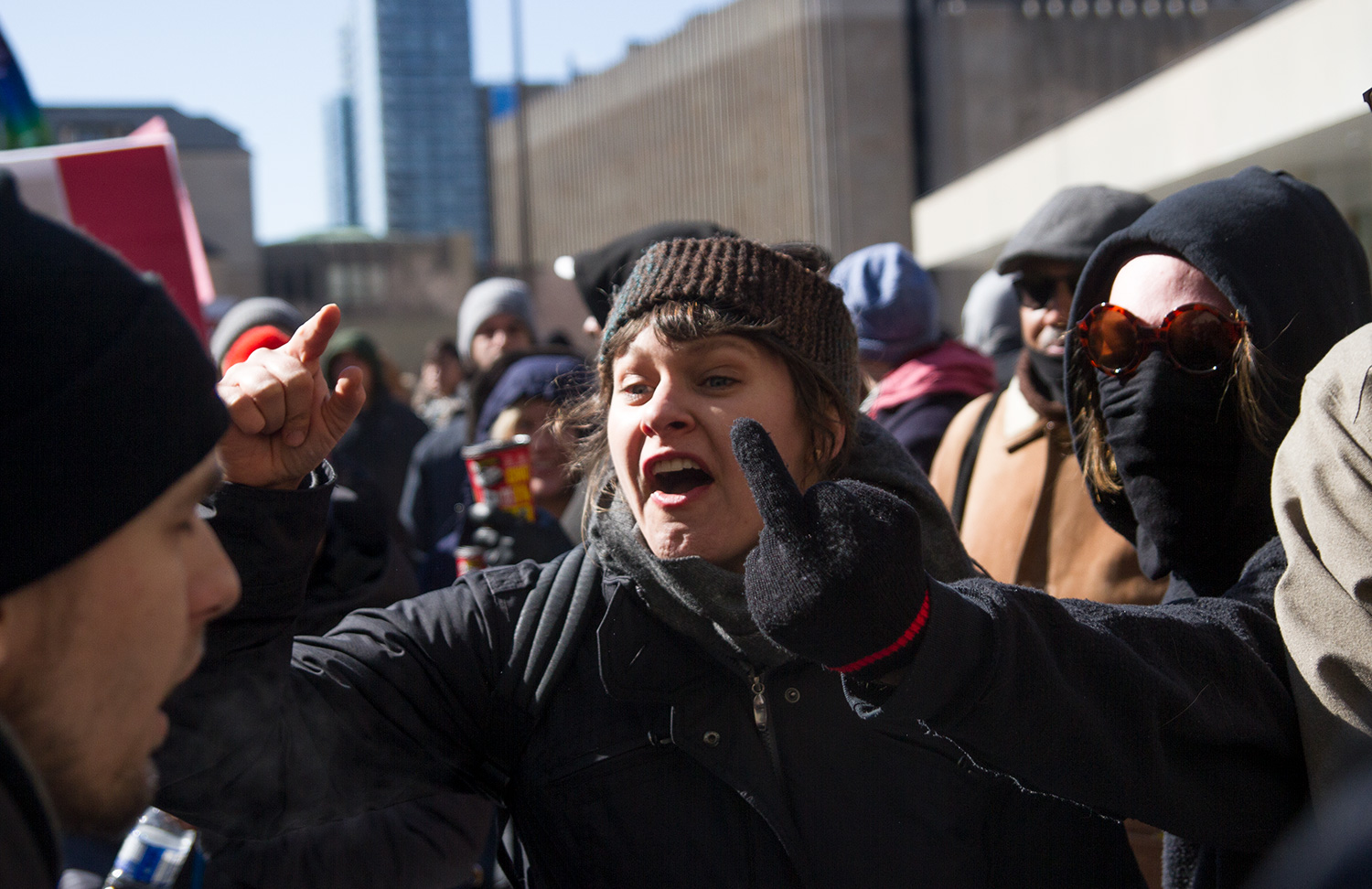
A counter protestor yells at one of the anti-M-103 protestors.
A black man who was leaving the protest stopped to embrace a friend. They stood hugging for a few moments, before stepping apart. The man lifted his glasses and wiped tears from him face. One of his friends, Sue Wilson, who was also in tears, told VICE the event was "overwhelming."
"The fact that they get police protection and we don't," she said, referring to the cops keeping the anti-M-103 group safe.
"It's a duty for all of us to stand against those who are preaching against intolerance and creating a culture of fear for Muslims in our community," Darius, a counter-demonstrator holding a baby in a baby carrier, told VICE after the rally. "It's obvious what's been going on… there's been a surge in attacks on mosques, and people feel emboldened to lash out against the Muslim community, and we can't allow these people to continue creating this culture."
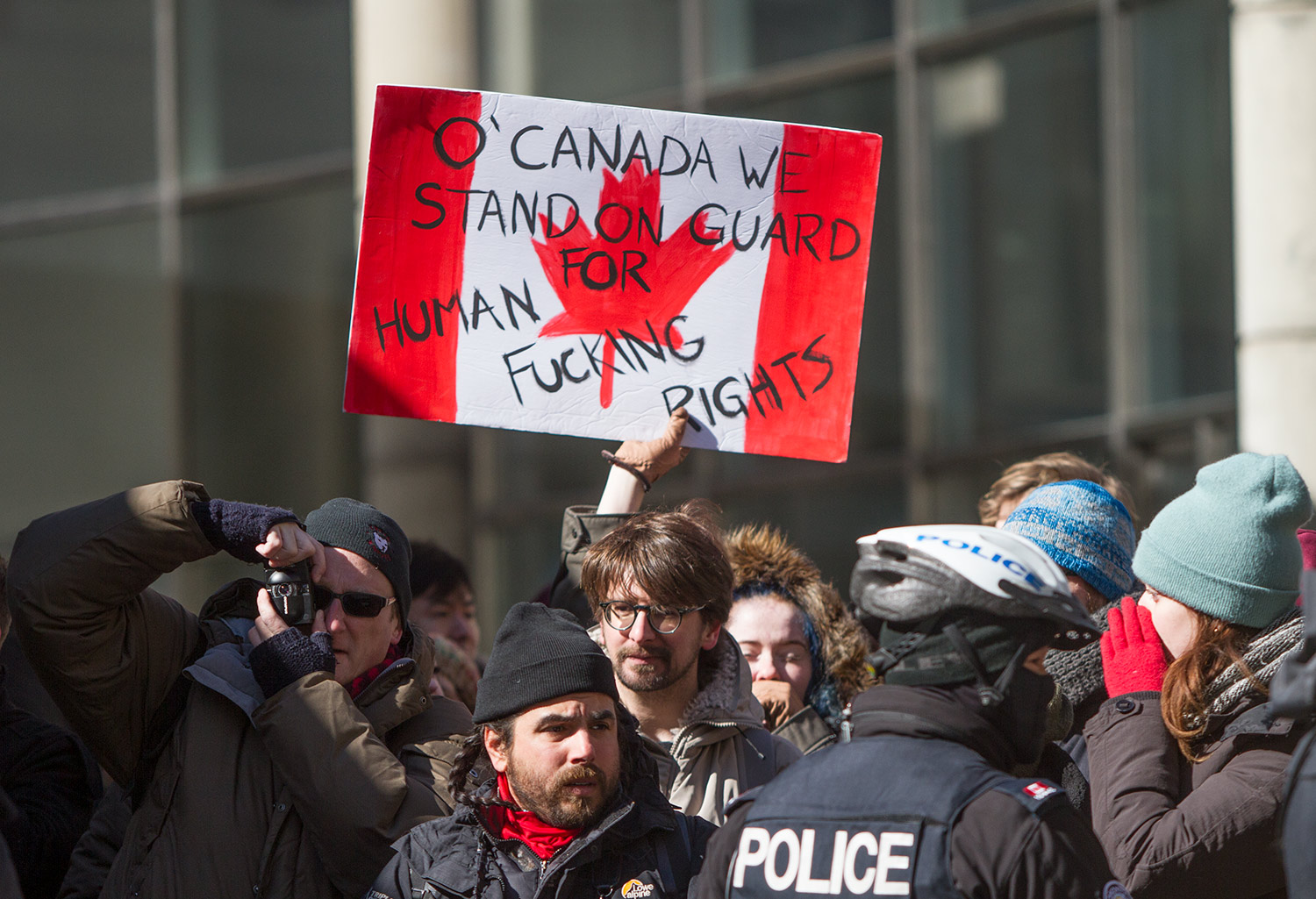
Counter protestors.
The nationwide protests come about a month after a gunman shot and killed six Muslims at Quebec City mosque during evening prayers. Still, and in spite of the fact that hate crimes against Muslims are on the rise, most of the anti-M-103 protesters didn't see right-wing extremism as a threat in Canada.
READ MORE: Why White Nationalists Are the Extremists We Should Fear
Eric Brazau, who was sentenced to nine months in jail in 2014 for willfully promoted hatred against Muslims and criminally harassing a Muslim man and his family, told VICE he didn't want to talk about the suspect in the shooting, Alexandre Bissonnette.
"Islam is bigger than a Muslim, Islam is bigger than some nice Muslims, Islam is a bigger issue than Alexandre Bissonette," Brazau said.
Soldiers of Odin, an anti-immigration vigilante group, joined the anti-M-103 protest in uniform, but refused to give VICE comment. While the rally was mostly peaceful, with a line of police officers separating the two camps, a few fights did break out, and things got particularly heated towards the end when police attempted to escort the Soldiers of Odin out.
Towards the end, as protesters were clearing out, one man wearing a Make America Great Again Hat was surrounded by police and counter-protesters. "Someone take his hat," one person screamed. Pushing and shoving ensued and police tried to keep the man isolated, a man wearing all black, whose face was covered by a scarf—likely an Antifa member—snatched the hat off the man's head from behind.
A police officer immediately grabbed him by the neck and pushed him against a wall, and other officers ran up to help bring him to the ground.

For a few minutes, counter-demonstrators screamed at the officers to "let him go," in unison, with some accusing the cops of "supporting fascists." The officers walked the man away from the crowd and released him to cheers and applause.
"The police made it very clear who they stand with and protected them the whole time," Darius said. "It's funny that right wingers need their own little safe space. It's too bad that so many cops showed up because if they hadn't shown up, these people would've been chased out very quickly, and they wouldn't have had an opportunity [to spread their message.]"
Darius slammed Rebel Media, which organized a well-attended anti-M-103 rally several weeks ago featuring four Conservative leadership candidates, for putting out "crazy conspiracy theories" about Canada being taken over by Islam and Sharia law.
"It's not factual in any way, but it leads to real violence. It would be funny if it wasn't so dangerous," he said.
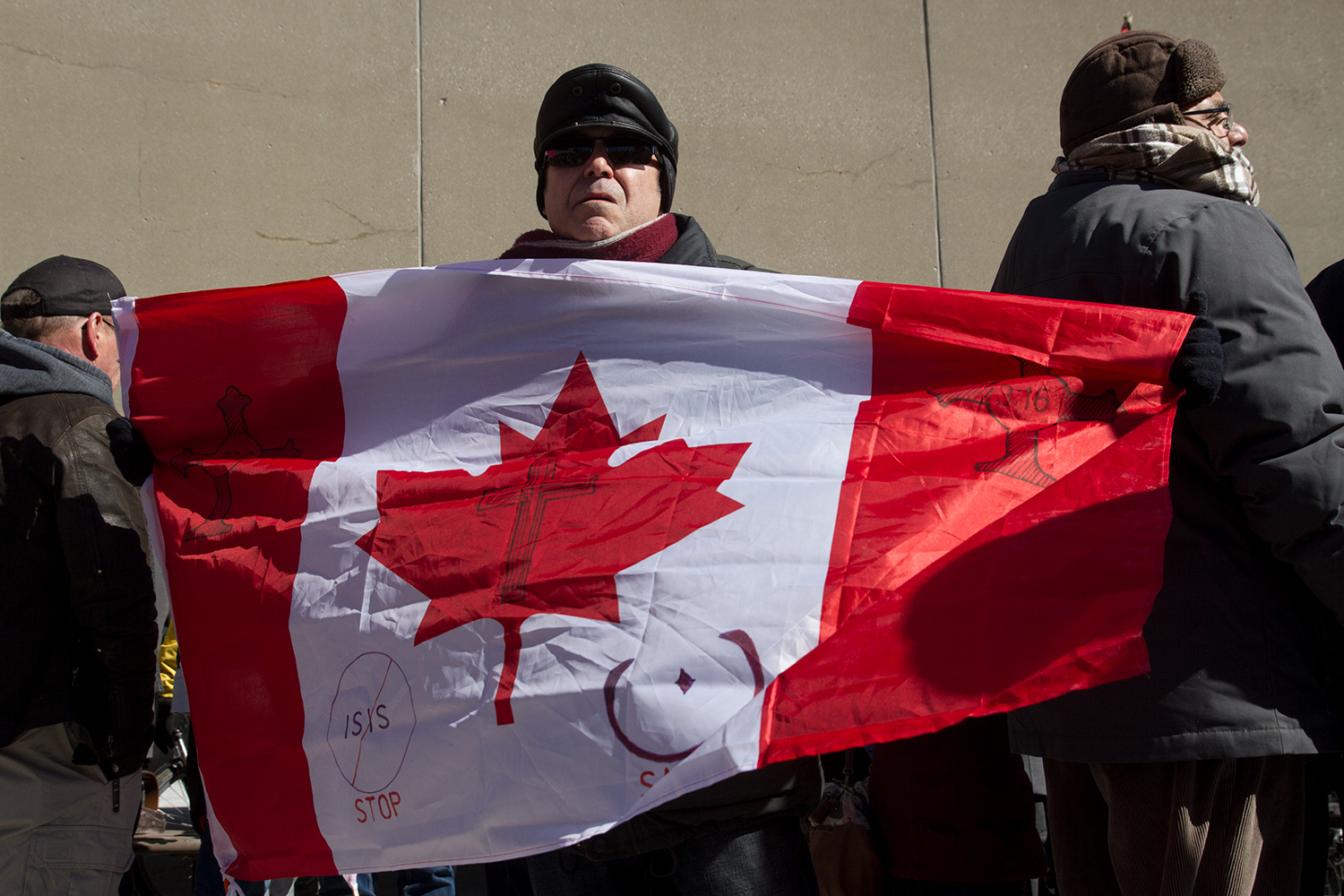
After the crowds dispersed, Sureya Ibrahim, a Muslim woman who came out told VICE the mosque shooting had caused her to "wake up."
"I was sleeping. I thought this is home, this is safe. We are not safe anymore and I feel there's a lot of fighting we need to do," said Ibrahim, who was wearing a white hijab. Despite the rise of hatefulness directed at Muslims, she said she refused to stay home.
"I'm not going to be scared. They're going to control me by scaring me? No. I'm defeating this."
With files from Mack Lamoureux and Sarah Hagi